DESTINATION


1. Overview
Brief introduction to the country and its reputation in medical tourism.
Spain, known for its rich cultural history, scenic vistas, and delectable cuisine, has steadily risen as a notable destination in the global medical tourism sector. Its high-quality healthcare system, state-of-the-art medical technology, and skilled healthcare professionals make it an appealing choice for medical tourists. Whether you are looking for elective surgeries, specialized treatments, or wellness therapies, Spain offers a wide array of services without compromising on quality.
Historical and Cultural Significance in Medicine
Spain has a long history of medical practice and research. The country's contributions to medicine can be traced back to the Islamic Golden Age, where Muslim Spain was a beacon of medical knowledge and advancement. Over the years, Spain has maintained its reputation for excellence in medicine and healthcare. The Spanish healthcare system combines traditional medicine with modern practices, sometimes incorporating techniques like acupuncture or herbal remedies along with cutting-edge surgical procedures.
Diverse Medical Treatments
Spain offers an array of medical treatments, ranging from essential care to specialized surgeries. The diversity in the types of treatments available is a testament to the country's commitment to providing comprehensive healthcare solutions. Whether you're looking for cardiological services, cosmetic surgeries, or fertility treatments, Spain offers an extensive list of procedures for medical tourists.
Reputation in the Global Healthcare Arena
Spain's reputation as a leading healthcare destination is backed by its ranking among the top healthcare systems globally. Its high standards in medical practices, research, and patient care make it a competitive player in the international medical tourism landscape. The presence of international accreditations in many hospitals further solidifies Spain’s standing as a reliable healthcare provider.
2. Popular Medical Procedures
Spain is particularly known for its expertise in cosmetic surgeries, dental treatments, fertility procedures, and orthopedic surgeries.
- Cosmetic Surgery : Spain is a popular destination for various cosmetic procedures including liposuction, facelifts, and rhinoplasty.
- Dental Treatments : High-quality dental care like teeth whitening, implants, and orthodontics are readily available.
- Fertility Procedures : Spain is a pioneer in fertility treatments, offering services like IVF, surrogacy, and egg freezing.
- Orthopedic Surgery : Procedures like knee replacement, hip replacement, and spinal surgeries are performed by highly-skilled surgeons.
Specializations and pioneering treatments include state-of-the-art laser eye surgeries, minimally invasive cardiac procedures, and advanced neurosurgical treatments.
3. Top Hospitals & Clinics
Spain is home to some of the finest medical institutions, many of which have received international accreditation for quality and safety.
- Hospital Clinic Barcelona : Known for its research and education in medicine.
- Quiron Madrid University Hospital : Specializes in complex surgeries and cancer treatment.
- La Paz University Hospital : Renowned for its maternity and child care services.
These hospitals have affiliations with leading universities and medical boards. They have received various awards for their contribution to medical science and patient care.
4. Cost Comparison
Medical procedures in Spain are generally more affordable than in countries like the United States or the United Kingdom. For instance, a hip replacement in Spain can cost around $15,000 - $20,000, while in the U.S., it might cost upwards of $30,000.
(Note: The above-mentioned prices are approximate and can vary.)
5. Quality & Safety
Spain’s medical facilities adhere to high standards, with numerous hospitals being ISO certified. Regulatory bodies like the Ministry of Health, Social Services, and Equality oversee healthcare quality. Standard safety protocols are strictly observed to ensure patient safety.
6. Medical Visa Information
Medical tourists from outside the European Union need to apply for a medical visa. Typical documentation includes medical records and a letter from the healthcare provider in Spain. The visa generally takes about 15 days to process.
7. Cultural Considerations
The primary language in medical facilities is Spanish, although English is commonly spoken by healthcare professionals. Cultural etiquette is similar to most Western countries.
8. Travel & Accommodation
Barcelona and Madrid offer a variety of accommodation options near medical facilities. Public transportation is efficient, and there are numerous spots for post-procedure relaxation like the beaches in Valencia or the mountains in the Basque Country.
9. Legal & Ethical Considerations
Spain has stringent laws concerning patient rights and medical malpractice. Ethical guidelines are strictly observed, especially in specialized fields like organ transplants.
10. Benefits & Risks
Spain offers advanced medical treatments at affordable costs. However, language could be a barrier if you venture into smaller towns.
11. Post-procedure Care
Spanish healthcare facilities offer excellent post-operative care, and rehabilitation centers are readily available for treatments that require extended recovery.
12. Frequently Asked Questions (FAQs)
- Is English spoken in Spanish hospitals?
Yes, English is commonly spoken in major hospitals.
- What is the quality of healthcare in Spain?
Spain ranks high in healthcare quality globally, offering a range of state-of-the-art medical services.
- Do I need travel insurance?
While not mandatory, it is highly recommended.
- Are medical records kept confidential?
Absolutely, Spain observes stringent data protection laws.
Located in Western Europe between France, Andorra, Gibraltar, and Portugal, Spain is slightly larger than the state of California. It has six cities with populations larger than 500,000 and a significant number of Columbian, Bolivian, German, Argentinean, Ecuadorian, Romanian, Moroccan, British, and French immigrants. This conflation of cultures gives Spain the distinction as having the 2nd highest immigration rate by percentage and the highest immigration rate in absolute numbers. Spain’s cultural diversity, large land mass, modern infrastructure, and low cost of living translates into a varied cultural, musical, gastronomical, ecological, and relatively inexpensive experience for tourists, without the high levels of crime sometimes associated with other medical tourism destinations.
Global Provider Members

Because of its large size, mountain ranges, and coastal areas, Spain’s climate varies depending on location. The high areas of central Spain (including Madrid) are subject to hot summers and freezing cold winters. Andalucia (the southernmost part of Spain and the location of Cordoba, Cadiz, Malaga, Granada, and Seville) can get scorching hot in the summertime, with temperatures surpassing 95 degrees Fahrenheit (35 degrees Celsius).
Facilitators

Toledo, Spain

Madrid, Spain

Valencia, Spain
Comunidad Valenciana, Spain
Alicante, Spain
Santa Cruz de Tenerife, Spain
Malaga, Spain
Murcia, Spain
Guipuzcoa, Spain
Catalonia, Spain
Castellon, Spain
Islas Baleares, Spain
Canary Islands, Spain
Málaga, Spain
Featured Treatments

MedicalTourism.com
MedicalTourism.com is a free, confidential, independent resource for patients and industry providers. Our mission is to provide a central portal where patients, medical tourism providers, hospitals, clinics, employers, and insurance companies can all find the information they need. Our site focuses on patients looking for specific knowledge in the fields of medical tourism, dental tourism, and health tourism.

Medical Tourism in Spain: Hola Wellness!
- Medical Tourism Guide
Are you uninsured and looking for affordable medical procedures abroad? Medical tourism in Spain may be the right choice. Why? Explore with us!
Best Medical Facilities — Affordable Treatments — Scenic Holiday Spots

Spain is fast emerging as a hub for medical tourism. It is among the top five medical destinations in Europe. [1] Healthgrades The Top 10 Medical Tourism Destinations “4. Spain features a low cost of living, which may be why its medical procedures cost less than in the U.S. ” View in Article The boom in Spain’s medical tourism is due to advanced medical services, affordable procedures, and experienced doctors.
This article will be your one-stop guide to help you with everything you need to know about medical tourism in Spain.
Top 5 Reasons to Choose Spain for Medical Tourism
As a medical tourist you may want to travel to Spain for the following reasons:
1. Affordable Medical Procedures- Save up to 70%
Patients traveling to Spain can expect to save anywhere between 30% and 70% in medical expenses.
For example, knee or hip replacement surgeries are cheaper in Spain by up to 60% compared to the U.K. and the U.S.
Cosmetic surgery such as nose reshaping can cost anywhere between £3,000 and £4,000 in the U.K., white it costs £2,400 in Spain.
2. The Excellent State of Healthcare in Spain
Spain is ranked 1st among the healthiest nations. Ahead of even U.K. (19th) & the U.S. (35th). [2] Worldhealth Bloomberg’s Global Health Index For 2020 “According to this report, the top 10 healthiest countries by population for 2020 are- 1. Spain ” View in Article
Spain boasts a vast healthcare system with more than 804 hospitals and 160,981 beds. [3] HealthManagement Overview of the Spanish Healthcare System “The remainder 465 hospitals are privately run and have 53,013 beds, which totals to 160,981 beds installed in Spain’s hospitals” View in Article
Spain’s medical system offers more than 10,600 surgeries per 100,000 population. [4] WorldBank Number of surgical procedures (per 100,000 population) “Spain offers more than 10,600 surgeries per 100,000 population” View in Article

This extensive and affordable healthcare system attracts medical tourists worldwide. Spain’s medical tourism is growing by 20 percent every year. [5] TourismReview Spanish Health Tourism is up 20% “Health tourism is growing in Spain at a rate of 20% per year, in both revenue and patient volume. ” View in Article
The hospitals have dedicated medical tourist wings with modern equipment, highly trained doctors, and even translators to address this boom.
3. Qualified Doctors and Medical Staff- You Are in Safe Hands.

Spanish Doctors
- Board Certified
- Well-renowned
- Excellent patient safety records.

Spanish Surgeons
- Extensive training (6-12 years)
- Registered with General Medical Council, U.K.

Spanish Nurses
- Well-trained
- Highly efficient
- Courteous and congenial to patients
It is a bonus that Spanish healthcare staff are also fluent in English. This will allow them to communicate your needs effectively and thus, provide you with the best care you will need.
4. Travel Convenience- Hassle-Free Access
- The international airports in Madrid and Barcelona make Spain accessible to Europe, the U.S., and Asia.
- Flight time from the U.K. to Spain is under 3 hours.
- There are a host of other connecting flights to smaller airports in other regions within Spain.
- The cities of Spain are also easily accessible by air, road, and rail.
5. Post-Operative Care and Rejuvenation
Medical tourism involves not only curing illnesses but also total health rejuvenation. Spain has made a name for itself because of its numerous health spots. These include:
- Thermal springs
- Silent hikes
- Meditation retreats
- Wellness activities with animals

Many hospitals and clinics are located in some of Spain’s most exotic locations. The soothing environment there provides an excellent ambiance for a relaxed recovery after surgery.
Recovering medical tourists can also enjoy outstanding Spanish Mediterranean cuisine and diets.

Cost of Medical Procedures in Spain
It is estimated that patients from the U.S. and U.K. can save 30-70% of medical costs when in Spain.
The cost comparison table below compares the prices of various procedures in Spain and the U.K. You can get a rough idea of how much you can save with each procedure.
Orthopedic Procedure Cost Savings in Spain
Cosmetic surgery cost savings in spain, dental work cost savings in spain, financing your surgery .
Affordability of any medical procedure is crucial in determining when, where, and by whom you can get your medical procedure done. Lack of funds must not hamper your right to access the best medical care.
Especially when you don’t have any insurance, you might want to look into the most economical options available in your medical tourism destination.
Here we provide you with the options available to plan your trip as per your budget constraints.

A Medical Tourists’ Guide to Spain – In 8 steps!
Visiting a new country for a medical procedure might seem intimidating in the beginning. However, thorough research and a well-planned trip can make the process relatively simple.
We can guide you through this process step by step. -->
- ? Which Doctor?
- ? Where to Stay?
- ?️ Visiting Time
- ? Documents Needed
- ✈️ Reaching Spain
- ? Payment Options
- ??⚕️ Post-Op Care
- ? Emergency Contacts
1. How Do I Select a Doctor for My Medical Procedure?
First, look for accredited Spanish doctors and hospitals that specialize in the medical procedure you need. You may read reviews, enquire other medical tourists, or send inquiry requests directly to the doctor.
You may ask them any questions you have regarding the procedure. These may include:
? Do medical tourists regularly opt for this procedure?
? What is the treatment itinerary?
? Estimation of cost of the procedure.
? Does my medical insurance cover the procedure in Spain?

Every hospital’s in-house team will assure you that they are the best. In this case, a reliable third-party source of information can help. This way, you will make a more informed decision.
At MTC, our top priority is finding the best specialists for you. Our verification process includes checking for a medical license, international accreditations, the latest technology, sterilization protocol, and patient reviews.
Check out this list of the Best Doctors in Spain .
2. Where Can I Stay?
Once you select your doctor, you now need to find suitable accommodation nearby the hospital. It could be a hotel or vacation rental services like Airbnb, unique accommodation, serviced flats, tourist apartments, or hostels.
A few factors to be considered while choosing your accommodation are:
- Safety of the area
- Distance from the hospital
- Availability of transport
- Cost of the accommodation
We strive to provide medical tourists with the best package plans to make their travel to Spain affordable, enjoyable, and hassle-free. You may schedule a call with our package experts to know more.
3. When Is the Best Time To Visit Spain?

4. What Documents Will I Need To Get to Spain?
Once you finalize the above modalities, you must keep the following documents ready before commencing your journey:
☑️ Passport
☑️ Visa (if needed)
☑️ Identification Documents
☑️ COVID vaccination certificate
☑️ Air ticket
Medical tourists coming to Spain from any EU member state do not need a visa to enter Spain. However, they will need proof of nationality, such as a passport or a national identity card.
Tourists from non-EU countries visiting Spain for a short stay trip (up to 90 days) have to apply for a Schengen short-stay visa to Spain, also known as a C-type visa. Medical tourists may particularly request a Spanish medical visa. [10] Schengenvisainfo Spain Visa Application and Entry Requirements “If you are planning to visit Spain for a short stay trip (up to 90 days), then you have to apply for a Schengen short-stay visa to Spain, known also as a C-type visa. ” View in Article
5. How Do I Reach Spain?
Spain has a well-connected and accessible transport system. If you are from the US, Asia, or Europe, you may prefer flying to Spain.
The airports with the most international flight connections include Madrid, Barcelona, Palma de Mallorca, Malaga – Costa del Sol, Alicante/Elche, Gran Canaria, and Tenerife Sur.
Estimated Air Travel Times to Spain
The airports further have last-mile connectivity, taking you to your final destination by train, taxi, bus, or metro.
You can consult the transport links on the information page of each airport. You will find recommended ways to get to the city and the average cost of the trips.
For more information on airlines, transport companies, security regulations, discounts, baggage limits, and checking in, visit the official AENA (Spanish Airports and Air Navigation) website.

Spain also has major cruise ports. The most relevant ones in terms of tourist traffic are those in Barcelona, Palma de Mallorca, Las Palmas, Santa Cruz de Tenerife, Malaga, Cadiz, Valencia, and Bilbao.
Medical tourists may consider getting to and around by this means too.
6. How Can I Pay for My Medical Procedure?
Our partner doctors and hospitals in Spain encourage payments through
- Wire transfers
- Debit cards
- Credit cards
- Bank transfers
Some partners may allow cash payments, especially for minor procedures.
7. How is Post-Operative Care in Spain?
Spanish doctors offer post-operative consultations and check in with your progress at regular intervals.
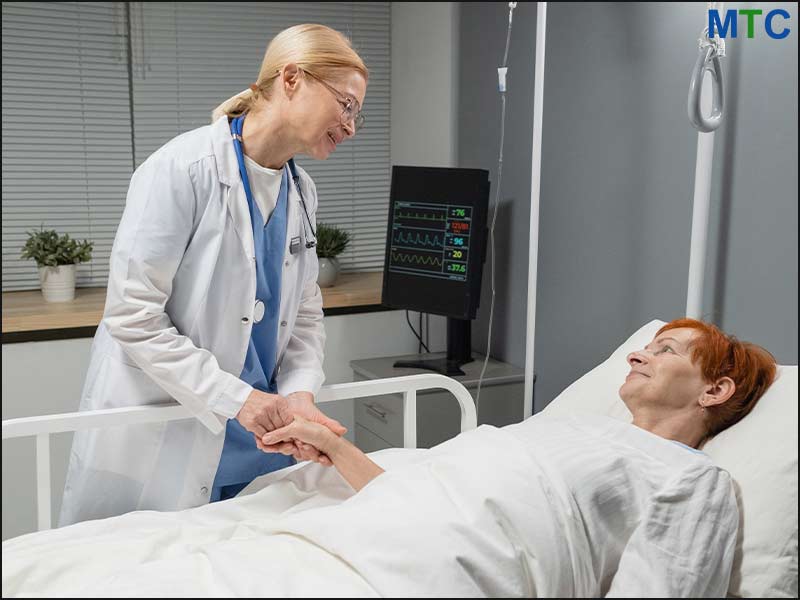
However, Spanish nurses don’t perform some British nurses’ duties, like personal care and feeding. The patients’ companions may carry these out. Hence, all the hospitals allow one companion to be with the patient 24 hours a day.
8. Whom Do I Contact in an Emergency?
You can contact the emergency services in Spain by calling the pan-European emergency number (112) from any telephone.
Here is a list of contacts of the emergency services in Spain:
? 112 – General emergency phone number
? 061 – Ambulancia (Ambulance)
?? 062 – Guardia Civil (Civil Guard)
? 080 – Bomberos (Fire Services)
?? 091 – Policia Nacional (National Police)
We understand that you may still have apprehensions about your travel to Spain.
It can be very helpful to talk to people who have already been to Spain for medical tourism. They can share their experiences and challenges with you so that you can make a better travel plan for yourself.
Kindly contact us to get in touch with other medical tourists who have been to Spain.
Popular Procedures for Medical Tourists in Spain
The most sought medical services in Spain are:
- Orthopedic surgery
- Weight Loss surgery
- Cosmetic surgery
- Elective surgery
- Eyesight surgery
Here is a basic guide to various medical procedures:
Orthopedic Procedures
Cosmetic procedures, dental procedures, well-renowned medical destinations in spain.
Spain truly has something to offer to everyone. The sunny climate, exotic beaches, cinematic landscapes, yummy Mediterranean diet, and rich cultural heritage are what most medical tourists would look forward to cherishing.
We bring you a suggested list of places you may visit to make the best of your time when you are in Spain.
Medical Tourism in Madrid
Madrid, which doubles up as Spain’s capital, is also a celebrated holiday getaway in Europe. The affordable healthcare services and living standards coupled with great holiday spots make Madrid attractive.

Madrid is at the heart of the high-ranking Spanish healthcare system because most of the hospitals in the city are Joint Commission International-accredited.
Popular medical procedures in Madrid include body scans, dental surgeries, and orthopedic surgeries. Recently, there has been a rise in patients from all over Europe seeking infertility treatment as well.

Madrid’s cultural offerings and stellar nightlife are a must to witness for people seeking minor outpatient medical services. While at it, you also can visit other places outside the city, such as Barcelona, the Balearic Islands, Costa Blanca, and San Sebastian.
Medical Tourism in Barcelona
Medical tourism in Barcelona is more competitive compared to other neighbouring regions. The vast and reliable healthcare system caters to both the local population and medical tourists alike.
According to the Barcelona Medical Destination, approximately 20,000 patients travel to the city for either medical or specialized treatment.

In Barcelona, you can access many medical services such as cosmetic surgery, orthopedic surgery, and general care. Other medical procedures include IVF, cardiovascular surgery, rare disease treatment, eye care, and dental care.
There are efforts to promote Catalonia as a popular destination for specialised medical care. Hence many more medical tourists are being welcomed.
Medical Tourism in Valencia
Valencia is also a popular medical tourism destination, famous for its excellent holistic and wellness approach to quality health.

Senior citizens constitute a more significant percentage of medical tourists visiting Valencia. The city’s good network of medical facilities and professionals have been the driving factors behind this trend.

Valencia’s standard medical procedures include dental care, eye care, orthopedic surgery, cardiovascular surgery, and cosmetic surgeries.
Q. Is Spain safe for tourists?
A. Spain is safe for medical tourists, provided they follow general caution and travel smartly.
The Global Peace Index ranks Spain 38 out of 163 countries regarding safety and peace in the country. [11] VisionofHumanity IEP’s Peace Research, Presentations And Resources “The Global Peace Index ranks Spain 38 out of 163 countries regarding safety and peace in the country.” View in Article As a testimonial to this, in 2017, Spain was the 2nd most visited country globally, racking up 82 million tourists.
Q. Is Spain’s medical system good?
A. Yes. Spain has one of the best healthcare systems in the world. Spain boasts a vast healthcare system with more than 804 hospitals and 160,981 beds. It offers more than 10,600 surgeries per 100,000 population.
This extensive and affordable healthcare system attracts medical tourists worldwide.
Q. How much does it cost to see a doctor in Spain?
A. The average consultation cost may be around €130- €200 . Compared with the U.S. and the U.K., you can save up to 70% on some medical procedures.
Q. How do medical tourists pay for surgery in Spain?
A. Doctors and hospitals in Spain encourage payments through:
- Debit or Credit cards
- Cash payments
Q. Will my doctor offer a follow-up after surgery in Spain?
A. Yes. You may talk to your doctor regarding your post-operative recovery and schedule follow-up appointments accordingly. In some cases, you may also get a free post-surgery consultation.
Spain provides medical tourists with an ideal location for treatment. The world-class medical facilities and highly qualified healthcare staff will help you heal better.
You not only get relief from your health woes but can also recover in one of the best holiday destinations within your budget.
We at MTC facilitate medical travel to Spain. Contact us for more information on Medical Tourism in Spain.
HEALTHGRADES: The Top 10 Medical Tourism Destinations
Worldhealth: bloomberg’s global health index for 2020, health management: overview of the spanish healthcare system, world bank: number of surgical procedures, tourism review: spanish health tourism is up 20%, the lancet: how long does a knee replacement last, nhs-uk: overview- hip replacement, healthline: how long do veneers last, healthline: how long do dental crowns last, schengenvisainfo: spain visa application and entry requirements, vision of humanity: iep’s peace research, presentations and resources.

- "We respect your privacy"

Contact Us Now
Medical Tourism Corporation is an international medical travel company based in the US. Our goal is to have satisfied and happy medical tourists.
CONTACT NUMBERS
Usa/can: +1-800-661-2126 global: +1-214-571-4553.
Address: 10658 Shire View, Dr Frisco, TX 75035, USA
Mailing Address: 3824 Cedar Springs Rd, #801-4762, Dallas, TX 75219, USA
Social Media

© 2023 Med Tourism Co, LLC
*Please review our full disclaimers, Terms & Conditions and, Health Privacy & Confidentiality Statement. Individual results may vary. The statements on this website have not been evaluated by the FDA or any medical professional.
- Privacy Policy
- Terms & Conditions

- Organ Transplant
- Mexico Doctors
- Mexico Hospitals
- Mexico Dentists
- Costa Rica Doctors
- Costa Rica Hospitals
- Costa Rica Dental Clinics
- Costa Rica Dentists
- Thailand Doctors
- Thailand Dentists
- Thailand Hospitals
- Best Dentists
- Best Doctors
- Turkey Hospitals
- All on 4 Dental Implants
- Veneers in Puerto Rico
- Vietnam Dentists
- India Hospitals
- Indian Dental Clinics
- Bogota Dental
- Barranquilla Dental
- Cartagena Dental
- Medellin Dental
- Colombia Dentists
- Lithuania Hospitals
- Weight Loss Surgery
- Plastic Surgery
- Orthopedic Surgery
- Cosmetic Surgery
- Spine Surgeon
- Spinal Center
- Request Pricing
- Fertility Treatment
- General Surgery
- Privacy Overview
- Strictly Necessary Cookies
- Cookie Policy
This website uses cookies so that we can provide you with the best user experience possible. Cookie information is stored in your browser and performs functions such as recognising you when you return to our website and helping our team to understand which sections of the website you find most interesting and useful.
Strictly Necessary Cookie should be enabled at all times so that we can save your preferences for cookie settings.
If you disable this cookie, we will not be able to save your preferences. This means that every time you visit this website you will need to enable or disable cookies again.
Introduction This Cookie Policy explains how MedicalTourismCo.com ("We," "Us," "Our") uses cookies and similar technologies to recognize you when you visit our website. It explains what these technologies are, why we use them, and your rights to control our use of them.
What Are Cookies? Cookies are small data files that are placed on your computer or mobile device when you visit a website. Online service providers widely use cookies to facilitate and help to make the interaction between users and websites, mobile apps, and online platforms faster and easier, as well as to provide reporting information.
Why Do We Use Cookies? We use first and third-party cookies for several reasons. Some cookies are required for technical reasons in order for our website to operate, and we refer to these as "essential" or "strictly necessary" cookies. Other cookies enable us to track and target the interests of our users to enhance the experience on our site. Third parties serve cookies through our site for advertising, analytics, and other purposes.
Types of Cookies We Use
- Strictly necessary cookies : These are the cookies that let you browse through our site. They are also necessary for security reasons.
- Third-party cookies : This website uses Google Analytics to collect anonymous information, such as the number of visitors to the site and the most popular pages. Keeping this cookie enabled helps us to improve our website.
How Can You Control Cookies? You have the right to decide whether to accept or reject cookies. You can exercise your cookie rights by setting your preferences in the Cookie Consent Manager. The Cookie Consent Manager allows you to select which categories of cookies you accept or reject. Essential cookies cannot be rejected as they are strictly necessary to provide you with services. If you choose to reject cookies, you may still use our website though your access to some functionality and areas of our website may be restricted. You may also set or amend your web browser controls to accept or refuse cookies. As the means by which you can refuse cookies through your web browser controls vary from browser-to-browser, you should visit your browser's help menu for more information.
Changes To This Cookie Policy We may update this Cookie Policy from time to time in order to reflect, for example, changes to the cookies we use or for other operational, legal, or regulatory reasons. Please, therefore, re-visit this Cookie Policy regularly to stay informed about our use of cookies and related technologies.
Cookie Usage
- Usage of Information : MedicalTourismCo uses cookies to gather non-personally identifiable information about users' visits to our site. This includes IP address, the domain name and browser used to access the internet, the pages visited on our site, and the address of the website visited immediately before visiting our site. We use this information to make our site more useful to visitors.
- Session Cookies : We use session cookies, which are small files written on the user's computer. These cookies expire when users leave the website and retain information only during the session or for the purpose of completing a particular online transaction, without any capacity to track users over time and across different websites.
- Linked Sites : The website includes links to other websites. MedicalTourismCo is not responsible for the privacy practices or content of these linked sites and disclaims all responsibility and liability associated with users' use of these linked sites.
- Children’s Privacy : MedicalTourismCo does not collect, store, or disclose information about children under the age of 18 without parental consent. If we receive information from a child under 18, we use that information only to inform the child that we require parental consent.
- Personally Identifiable Information : MedicalTourismCo collects personally identifiable information directly from users on our website, orally, or using offline forms. This information is shared with our dental clinics and hospitals network to provide users with health service solutions. We implement precautions to ensure this information is retained securely and protected against loss, misuse, and unauthorized access, disclosure, alteration, or destruction. We do not sell or transfer this information to another party for any purpose other than to provide the services users request.
Contact Information : If users have any questions or concerns regarding Medical Tourism Corporation's Health Privacy and Confidentiality Statement or our practices, they are advised to contact [email protected]
Get notifications for the latest deals and discounts!
Become Our Partner!
For medical travellers, for medical procedures.

- [email protected]
- Get a FREE quote
- Terms of Use
- Privacy Policy
Medical Tourism in Spain
Spain has all the potential to be one of the leading countries in medical tourism globally, and health tourism in Spain is growing at a rate of 20% per year. The country sees a rush of thousands of medical tourists every year. Spain was ranked seventh on the World Health Organization's international comparative list of the world's best health systems.
The Spanish market has seen an increasing demand in medical tourism because of many advantages such as:
The possibility to avoid long waiting times for specific procedures.
Comfortable, modern, and relaxing facilities.
Top-quality patient attention, and many more.
Spain offers varied treatments to medical tourists. Spain has more than 750 hospitals served by 450,000 doctors and nurses. Spanish Ministry of Health supervises all of the hospitals currently functioning in Spain to offer the best medical facilities for local as well as foreign patients.
Popular Medical Treatments in Spain:
Cosmetic Surgery
Orthopedics
Fertility Treatments - IVF
What Draw Medical Tourists to Spain?
Spain is blessed with a generous amount of sunshine, and different country locations have very diverse climates. It helps the tourists to combine their medical trip to Spain with a holiday in their favorite destination in Europe.
Apart from this, the Spanish healthcare system is far more attractive to international tourists than in their respective countries. These tourists are especially from the UK and Germany.
Following are some of the major features why Spain is considered one of the best medical tourism hubs:
Cost-Effective Medical Procedures: Compared to other countries in Europe and the US, patients traveling to Spain can save 30% - 70% in medical expenses. Knee or hip replacement surgeries are cheaper in Spain by up to 60%, and breast reduction & breast uplift are up to 49% compared to the UK and the US. Besides, if you visit Spain as a citizen of the European Economic Area (or EEA), you should get the European Health Insurance Card (or EHIC). This card will help you get free of charge or reduced-cost doctor's assistance.
Experienced and Qualified Doctors: The Spanish doctors, surgeons, and nurses are well-trained, certified, and experienced. Surgeons are registered with General Medical Council, UK, and have excellent patient safety records. They are committed to providing the best medical care and services to their patients. Another plus point is that the Spanish healthcare staff speaks fluent English, avoiding any language barrier during medical treatments.
Best Hospitals: The country has more than 20 JCI-accredited hospitals and clinics spread throughout. Some hospitals are even dedicated to medical tourists completely with translators on staff. The hospitals are well-equipped with modern equipment and technology. They also take care of the individualized needs of patients for their comfortable stay. This extensive, high-quality, and affordable healthcare system attracts a large number of medical tourists from worldwide.
Easy Travel: The country is easily accessible, and several inexpensive Airlines operate their flights to different Spanish cities. The flight time from the UK to Spain is under 3 hours. The cities in the country are easily accessible by road, rail, or air. You don't need to have a special medical visa, and you can have a tourist visa alone to meet your health care objectives in Spain. Tourists from Iceland, Norway, and Switzerland do not need a visa to enter the country. But it is recommended to contact the Spanish embassy before your visit to get an update about visa formalities.
Safety: Spain is considered a safe country to travel to. It is legally required to carry your ID with you. There are general rules that you should follow for a safe and enjoyable time:
If you witness a crime or you are the victim, call the emergency number 112 for help.
Avoid taking flowers from women because it is just a way of taking money from you.
Pickpocketing is common in crowded places, so if anyone offers to clean bird poo off your back, walk away because they are only trying to pickpocket you.
Carry your bag close to your body in public transport and crowded area.
Fantastic Food & Wine: Spanish cuisines are popular because they are flavorsome, healthy, traditional, and creative. A few dishes that you'll find all over Spain are Gazpacho, a cold, thick soup, and Tapas; small side dishes are served together simultaneously. And if you love wine, Spain is the best destination for a holistic wine experience. Spain is famous for being the world's third-largest exporter of wine, and they have more vineyards by area than anywhere else in the world.
Rejuvenating Post-Operative Care: Spain is considered one of the popular destinations for total health rejuvenation. You will find countless meditation retreats, beer spas, mud baths, wellness activities with animals, thermal springs, and much more. It will help you to get recovered easily and quickly after your surgery. Many hospitals and clinics are also located in some of the most exotic locations, which provide a pleasant and relaxed ambiance to the patient.
Tourist Attractions: An excellent place to start exploring Spain is its capital, Madrid. It is the third-largest city in the European Union. Madrid is also home to the World's Oldest Restaurant from 1725, called Sobrino de Botin. You can also visit Barcelona, home to the world's largest metropolitan park, Parc de Collserola, which is 22 times bigger than New York's Central Park. Apart from this, there are numerous tourist attractions such as The Great Mosque of Cordoba, Seville Cathedral and the Alcazar, Guggenheim Museum, Bilbao, the list goes on.
Cost Comparison Between Medical Treatments in Spain and UK
Hip Replacement: Hip replacement in the UK is £12,000 while in Spain it is £4,800.
Total Knee Replacement: £9,000 - £10,000 in the UK while in Spain it is £6,000 - £7000.
Arthroscopy: £3,150 in the UK while in Spain it is £658.
Face Lift: £7,300 in the UK while in Spain it is £4,500.
Breast Reduction: £6,900 in the UK while in Spain it is £3,500.
Liposuction: £3,000 - £4,000 in the UK while in Spain it is £1,500 - £2,000.
Dental Implants: £1,800 - £2,000 in the UK while in Spain it is £700 - £750.
Tooth Whitening: £550 - £600 in the UK while in Spain it is £300 - £350.
As you can see, there is a huge difference in prices between UK and Spain, and that's why patients travel to Spain for medical purposes. They can save a considerable amount of money while at the same time enjoying the beautiful delights in the country.
Best Hospitals in Spain
Below are some of the best hospitals in Spain where you can get high-quality treatment at an affordable price:
1. Quironsalud Spanish Medical Care : It is the leading hospital group in Spain and has accreditation of ISO 50001, OHSAS 18001, ISO 9001, ISO 14001, and The Joint Commission.
2. Hospital Universitari Sagrat Cor, Spain : The hospital is equipped with advanced technology and has approximately operated more than 25,000+ surgical cases and manages around 400,000 patients yearly.
3. Quirónsalud Proton Therapy Centre, Spain : It is an ISO-certified and largest healthcare chain across Spain and Europe which opened its first-ever Proton Therapy Centre for treating cancer patients in the last quarter of 2019.
4. Quirónsalud Madrid University Hospital : It is a JCI accredited hospital that conducts nearly 300,000 OPDs and surgical procedures annually.
5. Hospital Quirónsalud Barcelona : The hospital is JCI accredited and with ultra-modern equipment and facilities guaranteeing proper care of patients.
Best Doctors in Spain
1. Dr. José María Fernández Rañada : A well-recognized Hematologist and Bone Marrow Transplant Expert with 48 years of extensive experience.
2. Dr. Raymond Mirabell : He is a well-known Radio-Oncologist who has been practicing for the past 47 years.
3. Dr. Javier Hornedo Muguiro : A Medical Oncologist practicing for more than 36 years and has gained proficient skills and expertise in his field.
4. Dr. Javier Albiñana : An Orthopaedic & Joint Replacement Surgeon with more than 39 years of experience in treating hip dysplasia, Perthes disease, fractures, bone tumors, etc.
5. Prof Daniel Alejandro Maza : He is a leading Radio-Oncologist with 36 years of rich experience in his field.
Popular Medical Destinations in Spain
Madrid: It is the capital of Spain which provides cost-effective treatments with a great holiday spot. Most of the JCI-accredited hospitals are in Madrid, which also attracts a large number of medical tourists. Popular medical procedures in Madrid include body scans, dental surgeries, orthopedic surgeries, and infertility treatments.
Valencia: It is also a popular medical tourism destination because it provides high-quality medical services. The city has a good network of highly-qualified and experienced medical professionals. Popular medical procedures in Valencia are dental care, eye care, orthopedic surgery, cardiovascular surgery, and cosmetic surgeries.
Barcelona: Barcelona's medical tourism is more competitive than in other neighboring regions. As per Barcelona Medical Destination, approximately 20,000 patients travel to the city for either medical or specialized treatment. Popular medical treatments in the city are cosmetic surgery, orthopedic surgery, IVF, cardiovascular surgery, dental care, and eye treatment.
Entry Requirements to Spain
You must keep the following documents ready before traveling to Spain:
Visa (if required)
Identification documents
Medical tourists from any EU member state can enter Spain without any VISA. They only need to produce proof of nationalities, such as passports or national identity cards. Medical tourists coming from the US and Canada can stay for up to 3 months without an entry visa requirement.
Tourists from non-EU countries visiting Spain for a short stay trip up to 90 days have to apply for a Schengen short-stay visa to Spain, also known as a C-type visa. Medical tourists should have to request a Spanish medical visa particularly.
Are You Planning Traveling to Spain?
Medical tourism is a big business, and Spain will be the future destination. If you are planning to travel to Spain for medical purposes and want a comfortable stay in the country, make sure to be well-prepared for everything. However, medical treatments are affordable in Spain but have extra money for emergencies.
Bottom Line
Spain is a renowned medical tourism destination attracting a growing number of medical travelers all around the world. You can get high-quality and sophisticated medical facilities while also having a relaxing vacation by the sea.
Get in Touch with Medical Experts

Namisha Khanduri is a creative content writer. She loves to share her thoughts and opinions with the world and her aim is to develop content that accurately reflects her ideas!

With over 12+ years of experience, Dr. Shruti Rastogi has expertise in managing patients suffering from various ailments. She contributes to improving public health literacy helping people make informed decisions about their well-being. Her keen eye for detail and strong medical knowledge help maintain the highest healthcare information standards.
Our Happy Patients
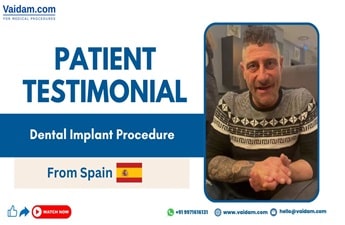
Patient from Spain Underwent Successful Dental Implant Procedure In Turkey
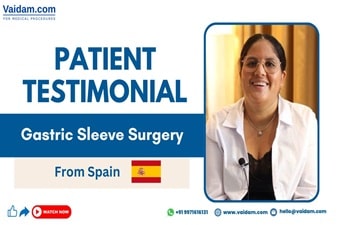
Patient From Spain Successfully Received Gastric Sleeve Surgery in Turkey

Mr. Julio Receives Successful Gastric Sleeve Surgery in Turkey

Spain Resident shares her experience on Liposuction Surgery in Turkey
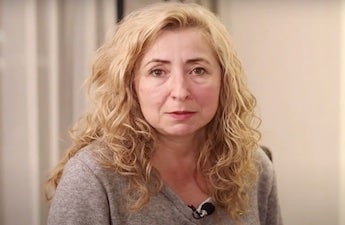
Carmen from Spain shares her experience on Abdominoplasty & Liposuction in Turkey

Spain Resident shares her experience on Breast Lift Surgery in Turkey
Spain's Soledad Morinigo Ayala successfully undergoes liposuction surgery
Recent blogs.
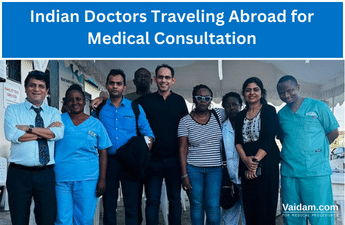
Indian Doctors Traveling Abroad for Medical Consultation

Interactive Session on Liver Transplant by Dr. Ankur Garg from Sanar International Hospital

Patient from Bangladesh Receives Bile Duct Cancer Treatment in India
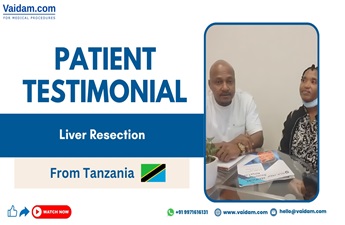
Patient from Tanzania Undergoes Liver Resection Surgery in India
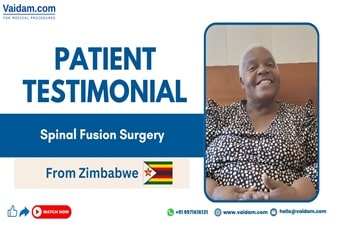
Successful Spine Surgery Results in Pain-Free Life After 9 Years | Patient from Zimbabwe

For the First Time, Donor Heart Successfully Transported Across the Atlantic on a Long-Haul Commercial Flight

Global Hospitals has Successfully Conducted a Swap Liver Transplant for Two Couples

American Dubai Hospital Performed Life-Saving Salvage Chemotherapy

US Surgeons Perform the First Pig-to-Human Kidney Transplant
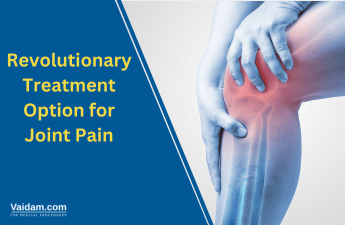
Breakthrough Knee Surgery Revolutionizing Treatment Options for Joint Pain in India

Exploring Dubai as a Local: How Can You Make Your Medical Tourism Journey Easy?

Living Like a Local: How to Make Your Thai Journey Easier During Your Treatment
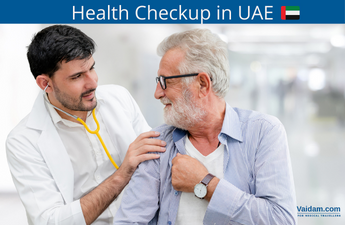
Health Checkup in UAE

Medical Tourism in Singapore

Health Check up in Thailand

Medical Treatment in UAE | Medical Tourism in UAE

Medical Treatment in Germany | Medical Tourism in Germany
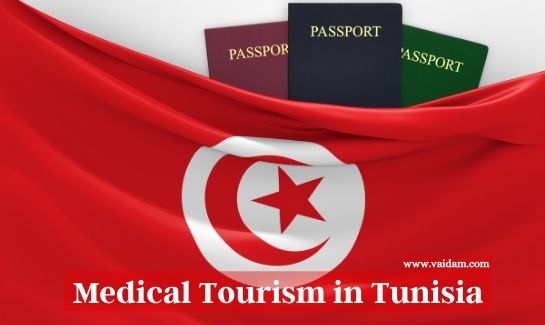
Medical Tourism in Tunisia

Medical Tourism in South Africa
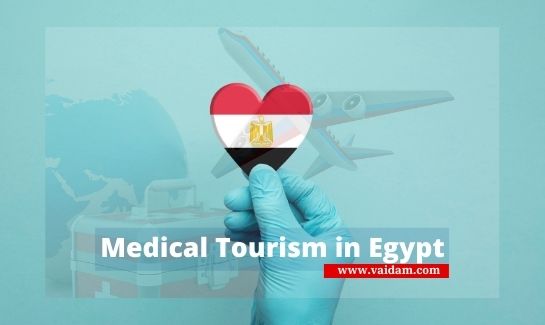
Medical Tourism in Egypt
Vaidam - a complete solution.

Vaidam Featured in

Why Vaidam?
25,000+ patients from 105+ countries have trusted vaidam.

NABH Certified Healthcare Discovery Platform
Vaidam is NABH certified healthcare discovery platform that will connect you to top-notch medical experts, hospitals, wellness options, and trusted travel partners to help identify and make the right healthcare choices.

Researched & Personalized Treatment Plan - Under One Roof
You can search for the best hospitals, read about them, view photographs of the facilities at the hospitals and the places at which the hospitals are located, and check the cost of treatment.

Quality Treatment Within Your Budget
As soon as you post an enquiry, the patient relation team will collect details from you, share them with the doctors and hospitals on Vaidam's panel, and get a personalized treatment plan. We research to get quality treatment within your budget.

Treatment to Travel
Vaidam concierge assists patients, to get medical Visa, the best airline fares and arrangements for your stay. Our concierge also helps you with daily travel, language, and food concerns. Vaidam does everything to be your perfect host. All of Vaidam’s services are free of cost to patients.

International Reach
Vaidam Health has network in 15+ countries, which includes India, Turkey, UAE, Germany, South Korea, Thailand, Malaysia, Spain.
Note: Vaidam Health does not provide medical advice, diagnosis or treatment. The services and information offered on www.vaidam.com are intended solely for informational purposes and cannot replace the professional consultation or treatment by a physician. Vaidam Health discourages copying, cloning of its webpages and its content and it will follow the legal procedures to protect its intellectual property
- Our Services
- Editorial Policy

Thank you. We will contact you soon.
To overcome restrictions due to Corona Virus, we are offering Paid Tele/Video Consultation from top doctors. Let us know if you are interested & we will contact you.

Vaidam is accredited by NABH, India's highest accreditation for healthcare service providers
- Close Search

MEDICAL TOURISM IN SPAIN

Healthcare System
Specialties & Medical Procedures
COVID Travel Requirements & Restrictions
Travel Requirements
Updated 7th October 2021
This article is continuously updated.
Spain has officially been dubbed the world's healthiest country!
As of 2019, the Bloomberg Healthiest Country Index has officially announced that healthcare in Spain ranks number one out of 169 countries, beating the UK, US, Italy, Iceland and other major healthcare players [1] .
According to other statistics, healthcare in Spain only falls behind Japan and Switzerland when looking at the entire globe; making it an absolute dream holiday destination for those in need of superior medical treatment. Not surprisingly, Spain has one of the highest life expectancies of all European countries, averaging 80 for men and 86 for women! [2]
Additionally, sight-seeing in Spain is a genuinely amazing experience! As a tourist, one can spend ages exploring the vastly varied landscapes, enjoying the delicious food, cheerfully mingling with the friendly locals and getting lost in the multiple pockets of ancient architecture that Spain has to offer.
Tourism aside, let's take a closer look at why you ought to travel to get the best healthcare in Spain !
Spain's Healthcare System at A Glance
Like most countries, healthcare in Spain is divided into the public and private sector. The public sector offers free basic healthcare to Spanish citizens, but not to international patients. Nevertheless, the majority visiting Spain for medical treatment are far more interested in what the private healthcare sector has to offer.
In fact, Spain is home to one of the largest and most successful private hospital chains in Europe: Quironsalud . If planning a trip for healthcare in Spain, we highly recommend booking with any of their many specialty centres. Quironsalud has a main focus on helping those with complicated diagnoses and cases, working with the best medical equipment and technology to treat any condition. [3]
Top 4 Specialties & Medical Procedures Worth Traveling for Healthcare in Spain
Spain is well-known for its medical excellence in the fields of cardiology, neurology, oncology, and pediatrics.
1. Cardiology Spain
Healthcare in Spain is renowned for its successful treatment of cardiovascular diseases. [4] Spain happens to be home to the Spanish Society of Cardiology [5] , a dedicated organization that is constantly improving heart health for those in the country. Through continuous research, the Spanish Society of Cardiology explores cutting-edge options for treating heart disease.
Recently, the former King of Spain, Juan Carlos, underwent successful open heart surgery at the age of 81 at Madrid's Quironsalud University Hospital , boasting of their expertise in this area! [6] The triple-bypass surgery - typically considered one of the most complex heart surgeries - went off without any complications thanks to the top surgeons Spain has to offer.
Aside from top surgeons and doctors of cardiology, Spain stands out for the following:
- Bloodless Cardiac Surgery
You read that right! Spain has become the international benchmark for successful bloodless cardiac surgery. Aside from respecting the patient's wishes, bloodless surgery does not opt for using blood transfusions and minimizes the risks associated with inheriting blood from a donor. [7]
- Da Vinci Surgery
Top healthcare providers in Spain implement the Da Vinci Surgical System [8] , which is a minimally invasive technology designed to dramatically enhance precision and reduce recovery time. With this equipment, there are far less complications, as surgeons have access to a very precise 3D model of the heart on the screen and have full control of robotic arms that make the cuts for them. If going for cardio surgery in Spain, you can dispense with worrying about whether your surgeon will make a mistake or not, thanks to the Da Vinci!
- Less is More Approach
Healthcare in Spain, particularly cardiology, appears to emphasize less invasive techniques to improve recovery time and success rates - less is more in the eyes of a Spanish cardiologist. One such approach is their fine appreciation of not too much or too little anesthetic - only prescribing the bare minimum to knock you out, but not so much that you'll battle to recover from the process! [9]
- Lower Waiting Times
Unlike the UK where you may be forced to wait 6-8 months for a critically required surgery, the waiting times for cardiology treatments in Spain are far lower. Recipients have mentioned that they only need to wait up to 2 months if using the public healthcare system; or not at all when booking for private healthcare. If you book in advance using an online platform like MYA CARE, the remainder of the time can be spent creating your dream holiday!
- Accurate Diagnosis with MR Scanners
The height of Cardiology, Spain makes full use of the best diagnostic tools for picking up on heart disease. One such tool is a magnetic resonance scanner, which is typically available in most private hospitals in Spain as well as even one or two public ones [10] .
2. Neurology Spain
There is a lot to be said about Spanish neurology. Spain has become a very popular destination for patients from all over the globe for providing exceptional expertise with regard to treating complicated brain diseases.
Just as with cardiology, Spain has a Society of Neuroscience [11] , which is just as dedicated to improving health outcomes for those with neurologic disorders. Statistics have shown that Neurology is one of the most popular choices for those who are studying medicine in Spain, making world-class specialization in this field readily available across the country [12] .
Below are some of the best procedures and highlights of neurology Spain has to offer [13] :
- Directional Deep Brain Stimulation
An innovative technique currently being used to treat Parkinson's Disease and other neurological conditions is Directional Deep Brain Stimulation. The procedure involves implanting permanent electrodes into the brain and sending out electrical impulses to balance defective neurological signals. A second device is implanted in the upper chest of the patient that regulates the impulses derived from the brain electrodes. [14]
Spanish neuroscientists and researchers are constantly improving on this technique, minimizing potential complications and improving the way the treatment regulates the brain. For those with tremors, epilepsy and other diseases where the brain is out of sync, this treatment offers a lot of promise!
- Gamma Knife Treatment
Gamma Knife treatment is an advanced radiation technique that is used to effectively remove diseased portions of the brain. Unlike what it sounds like, the device is not a blade but rather a machine that shoots a very precise beam of high-powered radiation into the brain of the patient, without damaging any surrounding tissues [15] .
Patients with brain tumors, Alzheimer's disease, permanently damaged brain tissues, epilepsy, trigeminal neuralgia and several other neurological conditions can find immense benefit from this therapy.
- Neuro-ophthalmology
Spanish neurologists often cater to the needs of multiple patients through making use of an impressive interdisciplinary approach. Neuro-ophthalmology is one such approach that integrates eye and brain health, looking at diseases of the eye from the perspective of the brain.
Those who are suffering from optic neuropathies, double vision problems, eye movement disorders and any other eye diseases linked to the brain and nervous system will find a variety of top healthcare professionals in Spain that can provide the required treatment.
- Neuro-Rehabilitation
Neurology in Spain offers some of the rarest specialty care for those who have suffered traumatic brain injuries and that need to rehabilitate their brains. Spanish experts adopt an integrative approach to brain rehab, looking at the body holistically to achieve the best results; while simultaneously implementing the most sophisticated medical techniques and technologies.
3. Oncology Spain
Cancer is an extremely tricky condition to treat. Spain is very involved in researching cancer treatments and expanding upon the oncological expertise of its oncologists. The European Society for Medical Oncology has repeatedly held their annual congress in Spain for this very reason.
In terms of oncology, Spain and it's collective of oncologists tend to come out on top for accurate diagnosis and crafting the best multi-modal approach unique to the patient's case. Specific genetic testing and a heightened research focus are what set oncology in Spain apart. [16]
Here are some other highlights:
- Proton Therapy , Cyber Knife Therapy & Other Radiation Treatments
Oncology in Spain excels in delivering the most effective radiation treatments of our time, such as proton beam therapy [17] and cyber knife treatment. As with Gamma Knife treatment, both of these radiation therapies use machines that use different forms of radiation to that of x-rays such as gamma rays and protons.
These treatments differ to other radiation therapies in that they are more precise with increased potency, non-invasive and may even provide immediate pain relief to the patient. [18]
- Bone Marrow Transplant
A bone marrow transplant is also known as a stem cell transplant, as healthy stem cells are implanted in the patient's marrow to encourage healthy marrow growth. The bone marrow of many cancer patients often becomes damaged while undergoing chemotherapy; in which case a bone marrow transplant is highly advisable. [19]
Once again, Spain seems to outshine the rest of the world in this department, offering bone marrow transplants combined with a more integrative approach to ensure optimal success. Furthermore, the majority of Spain offers bone marrow transplants freely to all of it's citizens and offers it as part of the coverage of nearly all insurance policies. [20]
4. Pediatrics Spain
Considering that Spain has one of the lowest birth mortality rates in Europe [21] , it's not surprising that they excel in the medical field of Pediatrics. Spain offers plenty of the world's best healthcare pediatricians with a specific focus on pediatric surgery, oncology, orthopedics and cardiology. [22] As with all the other medical specialties listed above, Spain has it's very own Society of Pediatric Intensive Care, dedicated to improving the lives of children everywhere through targeted research. [23]
For infants, young children and even adolescents up to age 16, pediatricians in Spain are capable of offering some of the most expert treatment you'll find on the planet. Even as a pregnant mother, your child can receive an accurate diagnosis before exiting the womb, for which the doctors can then already begin working with the mother to give the child the best start in life.
- Pediatric Telemedicine
Many disorders that begin in the early stages of a child's life require follow up treatment. Another point to make about pediatrics in Spain is that healthcare providers often make use of telemedicine to ensure that international patients can still receive follow-up consultations and advice throughout the course of the child's development.
- Pediatric Surgery
As with the other surgeries we have outlined above, pediatric surgery in Spain has a reputation for being reliable, precise and minimally invasive. Robotically-assisted surgery, that makes use of tools such as the Da Vinci System, ensures that there are far less complications when operating on tiny bodies. Even the smallest of babies have mostly had successful operations thanks to these latest advancements in pediatric surgery.
Pediatric surgeons in Spain are especially gifted at using robotically-assisted surgical techniques, with the first introductions of these systems never once reporting the need to revert to open surgery [24] . Most pediatric surgeries carried out in Spain today also use bloodless techniques that do not expose children to the risk of inheriting a disease from a blood donor, unless absolutely required.
While your child can undergo just about any surgery necessary, Spain truly stands out for mastery in respiratory, digestive, vascular, liver, reconstructive and oncological surgeries for children.
- Pediatric Cardiology
There are many heart problems that can manifest in children - too many to list here. Pediatricians in Spain are well equipped at diagnosing and treating all of them, gaining an impressive international status amongst local and foreign patients alike.
A lot of parents lose their newborns as a result of cardiac surgery. However in Spain, the success rate for such surgeries is a whopping 96%! [25] The pediatric cardiologists of Spain often assume an interdisciplinary approach as well, treating your child's condition within a whole-body context that promotes top-notch results.
If your child needs a pediatric heart specialist, do not hesitate to book a trip to Spain!
- Pediatric Orthopedics
Hip dysplasia, clubfoot, long bone disorders like gigantism, burn wounds, cleft palates and many other growth deformities need not be a lifelong stigma for your children any longer! Pediatricians in Spain will combine their mastery of reconstructive surgery with some of the best known strategies to treat your children, allowing them to lead a normal healthy life free from any constraints, both emotional and physical.
- Pediatric Oncology
As with adult oncology, Spain has gained a lot of expertise in the area of pediatric oncology too. Since children are still developing their immune systems, Spain's top pediatricians tend to use a progressive multidisciplinary approach to treating children. In conjunction with many of the radiation therapies discussed above, immunotherapy is often employed to treat children with cancer; adding to Spain's impressive child-cancer remission rates! [26]
Specialized pediatric oncology units exist in Spain, which adopt young patients from all over the globe to treat even the most serious forms of cancer [27] . Research is continuously being carried out to help improve treatments for these children, with innovative procedures and therapies being tested for currently incurable forms of the disease.
With Spain's progressive approach, they are fast-forming the best pediatric healthcare service in the world to-date.
COVID Travel Requirements and Restrictions for Spain
In response to the global COVID-19 pandemic , Spain has restricted non-essential travel to the country. Luckily, these restrictions do not apply to those who are fully vaccinated and there are additional exceptions which may grant unvaccinated individuals entry.
Who can Enter Spain during the current pandemic?
Spain’s borders are currently open to any EU and Schengen region citizens; as well as to a select list of other countries and locations. These include: Australia, New Zealand, Chile, Uruguay, Canada, Kuwait, Qatar, Saudi Arabia, Jordan, United Arab Emirates, Rwanda, Singapore, South Korea, China, Hong Kong, Macao, Taiwan and Ukraine.
Travelers from regions not specified above may be allowed if they have a vaccination certificate that is recognized by Spanish health authorities. Those from the UK or Ireland can enter if they have an equitable vaccine certificate and/or an official diagnostic test certificate that confirms they don’t have COVID-19.
Entry from countries outside of the EU and partner nations may also be granted to the following individuals, irrespective of vaccination status:
- Foreign residents within the EU, Schengen regions, Andorra, Monaco, The Vatican or San Marino.
- Long-term visa holders intending to travel to the EU or Schengen regions (the visa must have been issued by countries within these areas).
- Students studying in the EU or partner countries.
- Transport operatives, essential healthcare professionals (incl. professional elderly caregivers and researchers), essential highly-skilled workers (incl. sports professionals), diplomats, military personnel, and members of humanitarian organizations.
- Those traveling for essential family-related purposes
- Those requiring to enter Spain out of absolute need or for humanitarian reasons
The above applicants need to provide valid proof of their intention to travel to Spain. Currently, only essential travel within the above categories is permitted.
In addition to these restrictions, entry may be denied to travelers entering from a high-risk country; unless travelers from these regions possess an EU Digital COVID Certificate or another official form of certification that meets the same requirements (see below). Spain’s high-risk list is updated every week and may include countries from the EU/Schengen regions.
Spain Travel Requirements
Spain launched the Spain Travel Health initiative as a prevention measure for those intending to enter the country [28] . In addition to pre-existing travel requirements, a few other requirements have been added as a result of the initiative.
Visa: A visa is required for travel to Spain, unless the traveler is entering from a visa-exempt country. Tourist visas are known as Schengen visas and may also be used for business purposes. These allow a traveler access to all 26 Schengen countries for a period of up to 90 days. Spain has other visa options for workers and students.
Visa-exempt countries include those from the EU/Schengen area, the US, Canada, Australia, New Zealand, Argentina, Brazil and Japan. After 2022, those from the EU/Schengen area need to apply for an ETIAS Visa Waiver .
Health Control Form: A Health Control Form is required for anyone traveling to or transiting Spain. One needs to fill out the form 48hours before departure. It captures personal details which are sent to the Spanish Ministry of Health in order to keep track of those entering the country. There are unique versions of this form for individuals, groups/families, air travel, ferry travel or those who have already filled out a form from prior travel to Spain. You can find the appropriate Health Control Form here or on the app (see below).
Spain Travel Health App: All travelers need to download the Spain Travel Health app. This keeps a record of your Health Control Form and provides airport officials with a QR code. The QR code allows you to enter Spain and a new one is generated for every trip. Other details are also uploaded to the app, including your Digital COVID Certificate.
If you lack the ability to get the app, you can manually print out your QR code to show at the airport. Furthermore, you will be subject to a slower arrival process, as all your documentation will need to be manually checked by airport staff.
EU Digital COVID Certificate: This is certificate provided by officials of EU/Schengen region countries that verifies either of the following:
- Full vaccination against COVID-19, effective 14 days after the final shot was administered,
- A diagnostic test with confirmation of a negative result, or
- Confirmation of recovery from COVID-19 (at least 11 days after receiving a positive diagnostic result), valid for 180 days.
There are currently 16 non-EU countries that also provide EU Digital COVID Certificates, as seen here .
Not everyone can get an EU COVID Certificate. Other relevant certification that meets the requirements of the EU certificate may be used when applying to enter Spain. The requirements are discussed in more depth below, under testing and vaccination.
Vaccination: A full vaccination status grants automatic entry into Spain and is a requirement for all traveling from a non-EU/Schengen area country (see exceptions above). Spain accepts a full regimen of either EU-approved or WHO-approved vaccines. [29]
So far, the EU accepts the following vaccines [30] :
- BioNTech/Pfizer
- AstraZeneca
- Janssen (Johnson & Johnson)
CureVac, Sanofi-GSK and Novavax are expected to be approved soon by the EU as well.
In addition to the above, Spain will accept a full regimen of the following [31] :
Full vaccination status is only active 14 days after receiving the final shot of any vaccine regimen. The EU approves of mixed vaccinations, however only standard combinations are approved. [32]
A vaccine certificate needs to display your full name, date of birth, a unique identifier such as your ID or passport number, date of vaccines received, the name of the vaccines received, the company that produced the vaccines and the organization that administered the vaccines.
Testing: A negative test result is required for unvaccinated individuals for entry into Spain; however, those traveling from non-EU/Schengen area countries may be denied if not fully vaccinated. Test results form part of the EU Digital COVID Certificate or equivocal verification.
Two types of tests will be accepted: a Nucleic Acid Amplification Test (NAAT) and a Rapid Antigen Test (RAT). A NAAT needs to be performed within 72 hours of arriving in Spain, while a RAT needs to be performed within 48 hours of arrival. [33]
Testing is not a requirement for fully vaccinated individuals. Those wishing to make multiple visits to Spain will need to update their certificate with new test results for each trip.
Quarantine: Spain does not require for travelers to quarantine upon arrival. However, entry may be denied in lieu of the appropriate certification.
One may be forced to quarantine at an institution if tested and proven to have COVID-19. Temperature and physical symptoms will be screened upon arrival. If suspected, a test may be administered. Those from high-risk countries will be prioritized in this regard. [34]
To search for the best healthcare providers worldwide, please use the Mya Care search engine.
- [1] https://www.independent.co.uk/life-style/health-and-families/world-healthy-country-ranking-list-healthiest-index-spain-uk-italy-iceland-a8797016.html
- [2] https://www.who.int/countries/esp/en/
- [3] https://www.quironsalud.es/en
- [4] https://www.oecd.org/spain/Cardiovascular-Disease-and-Diabetes-Policies-for-Better-Health-and-Quality-of-Care-Spain.pdf
- [5] https://www.escardio.org/The-ESC/Member-National-Cardiac-Societies/Spanish-Society-of-Cardiology
- [6] https://apnews.com/433c1b671e26425a9ae24feddbfe8756
- [7] https://www.quironsalud-hospitals.com/en/clinical-areas/heart-department
- [8] https://www.davincisurgery.com
- [9] https://www.euroresidentes.com/euroresiuk/health/operation_in_spain.htm
- [10] https://www.revespcardiol.org/en-first-magnetic-resonance-managed-by-articulo-S188558571830094X
- [11] https://www.senc.es/en/
- [12] https://www.sciencedirect.com/science/article/pii/S2173580819301051
- [13] https://www.quironsalud-hospitals.com/en/clinical-areas/neuroscience-department
- [14] https://www.mayoclinic.org/tests-procedures/deep-brain-stimulation/about/pac-20384562
- [15] https://www.mayoclinic.org/tests-procedures/deep-brain-stimulation/about/pac-20384562
- [16] https://www.quironsalud-hospitals.com/en/clinical-areas/oncology-department
- [17] https://www.cancer.net/navigating-cancer-care/how-cancer-treated/radiation-therapy/proton-therapy
- [18] https://www.ucsfhealth.org/treatments/cyberknife/
- [19] https://www.mayoclinic.org/tests-procedures/bone-marrow-transplant/about/pac-20384854
- [20] https://www.nature.com/articles/bmt2016177
- [21] https://data.unicef.org/country/esp/
- [22] https://www.quironsalud-hospitals.com/en/clinical-areas/childrens-health-department
- [23] https://www.wfpiccs.org/spanish-society-of-pediatric-intensive-care-secip/
- [24] https://www.ncbi.nlm.nih.gov/pubmed/22097655
- [25] https://www.quironsalud-hospitals.com/en/clinical-areas/childrens-health-department
- [26] https://www.sjdhospitalbarcelona.org/en/immunotherapy-has-allowed-us-see-our-child-continue-growing
- [27] https://www.sjdhospitalbarcelona.org/en/what-will-future-sjd-pediatric-cancer-center-barcelona-be
- [28] https://www.spth.gob.es/faq?tab=0#whatis
- [29] https://www.mscbs.gob.es/en/profesionales/saludPublica/ccayes/alertasActual/nCov/spth.htm
- [30] https://ec.europa.eu/info/live-work-travel-eu/coronavirus-response/safe-covid-19-vaccines-europeans_en
- [31] https://www.schengenvisainfo.com/news/which-covid-19-vaccines-are-approved-for-travel-to-spain/
- [32] https://ec.europa.eu/info/live-work-travel-eu/coronavirus-response/safe-covid-19-vaccines-europeans/eu-digital-covid-certificate_en#recognition-of-covid-certificates-from-third-non-eu-countries
- [33] https://www.spth.gob.es/
- [34] https://www.mscbs.gob.es/en/profesionales/saludPublica/sanidadExterior/ControlHS.htm
Disclaimer: Please note that Mya Care does not provide medical advice, diagnosis, or treatment. The information provided is not intended to replace the care or advice of a qualified health care professional. The views expressed are personal views of the author and do not necessarily reflect the opinion of Mya Care. Always consult your doctor for all diagnoses, treatments, and cures for any diseases or conditions, as well as before changing your health care regimen. Do not reproduce, copy, reformat, publish, distribute, upload, post, transmit, transfer in any manner or sell any of the materials in this blog without prior written permission from myacare.com.
Featured Blogs

ARE YOU OVERDOING IT AFTER HYSTERECTOMY?
For most women, hysterectomy is a significant point in their lives. Whether the surgical removal of the uterus is done for endometriosis, fibroids, or gynecological cancer, life after hysterectomy permanently changes a few aspects of your life.

WHAT IS ROEMHELD SYNDROME?
Between the decades of 1910 and 1920, Dr. Ludwig Roemheld studied the phenomenon in which patients suffering from digestive problems and no detectable heart issues would experience cardiac symptoms.

PIRIFORMIS SYNDROME & HERNIATED DISC: SIMILARITIES AND DIFFERENCES
Piriformis syndrome and herniated discs are painful conditions of the back. Both can cause sciatica. Sciatica is a type of pain that affects your lower back and legs. It occurs due to irritated or compressed sciatic nerve. The sciatic nerve travels down the back to the legs.
- Healthcare Provider
Specialties
- Social Responsibility
- Patient Testimonials

World-Class Medical Tourism with Taqtik Health in Spain
Introduction.
Spain is fast emerging as a popular destination for medical tourism, offering a blend of high-quality healthcare, advanced medical technology, and beautiful tourist spots. If you've ever considered combining a vacation with medical treatment, Spain should be on your radar. Let's delve into the factors that make Spain a standout choice for medical tourists.

Why Choose Spain for Medical Tourism?
- World-Class Facilities - Spain boasts a range of hospitals and clinics that meet international standards. Many of these establishments have accreditation from reputable international bodies, ensuring that you'll receive top-notch care.
- Highly Skilled Professionals - The country's healthcare system is renowned for its highly skilled doctors, surgeons, and medical staff, many of whom have received international training and can speak English fluently.
- Wide Array of Medical Procedures - From cosmetic surgery to dental care, cardiovascular treatments to fertility procedures, Spain offers a plethora of medical services that cater to a diverse set of needs.
- Affordability - Medical treatments in Spain are often more affordable compared to other Western European countries and the United States, without compromising quality.
- Tourist Attractions - Spain is also an attractive destination for its rich history, culture, and natural beauty. From the stunning beaches of Costa del Sol to the architectural wonders in Barcelona, you can experience the best of Spain while you recover.
Planning Your Medical Trip
- Research and Consultation - It's crucial to thoroughly research the medical procedure you're considering, as well as the healthcare providers in Spain. Consultation with a medical tourism agency like Taqtik Health can give you insights into the best options for your needs.
- Visa and Travel Arrangements - Most countries do not require a visa for short stays (up to 90 days), but it’s best to check the visa requirements applicable to your home country. Make sure you also consider the recovery period when planning your stay.
- Accommodation - Spain offers a range of accommodation options, from budget hotels to luxury resorts, often within close proximity to medical facilities.
Spain's commitment to healthcare excellence, coupled with its status as a top tourist destination, makes it an ideal choice for medical tourism. With advanced healthcare infrastructure and a plethora of tourist attractions, your medical journey in Spain promises to be both healing and enriching.
Medical Tourism Spain, Healthcare in Spain, Best Hospitals in Spain, Medical Procedures Spain, Spain Health Guide, Spanish Doctors, Affordable Treatment Spain, Medical Vacation Spain, Taqtik Health Spain.
For more information and customized medical tourism packages, please reach out to Taqtik Health. We're here to ensure your medical journey is as smooth as possible.
Spain Snapshot
Map of spain.
- Bariatrics and Obesity
- Cancer and Oncology
- Cosmetic & Plastic Surgery
- Cosmetic Gynecology
- Dental Treatments
- Fertility & Reproduction
- General Surgery
- Health Checks
- Orthopedics & Joints
- Gender Transition
- Regenerative
- Serious Disease
- Consultation
- Concierge Travel & Planning
- Medical Second Opinion
- Medical Teleconsultation
- Remote Patient Monitoring (RPM)
Services for Health Tourism in Spain
Spain healthcare & tourism, spain, your best option.
Spain Healthcare & Tourism, a member of Gestiona y Suma Salud S.L. provides assistance in getting medical and wellness services for patients Spain.
We combine an offer including Tourism, Medical care and Wellness
Spain Healthcare & Tourism represents a group of prestigious medical specialists and Hospitals highly qualified and endowed with high technology as well as pioneering diagnostic and surgical techniques recognized worldwide.
The selection of medical specialists and Hospitals is carried out through an exhaustive qualitative analysis offering the patient safety and quality in the healthcare process.
Our goal is to provide the patient and his companion with a positive experience advising and accompanying him in the needs that they may have during their stay in Spain.
Spain Healthcare & Tourism respects all cultures and religions.
The patient is the center of our activity. We personalize the care and the treatments for each patient based on the special needs.
Spain is recognized worldwide as an extraordinary destination for Medical Care, Wellness and Tourism.
YOLANDA HERREROS
Chairman & founder, what we do best, we take care of the patient, his safety and the quality of care he receives. we accompany the patient during his entire stay in spain, assisting him throughout the treatment process., the patient is the center of all our activity., ophtalmology, digestive surgery, neurosurgery, plastic surgery, oncology and radiotherapy, orthopedic surgery, fertility treatments, services to facilitators, our services to the patient, additional services, our healthcare partners, spain healthcare and tourism, the solution to your health problems in spain..
- January 04 , 2017
- By : Yolanda Herreros
- Category : Blog
- Tags : Facilitator , Medical Tourism Facilitator , Spain Healthcare Tourism
- Comment : 0
Complete guide to medical tourism in Barcelona

A list of the most renowned specialist medical centres in the city.
It's a worrying thought isn't it? That something could happen to you or a family member and the treatment for it doesn't exist in your own country, is illegal, or is priced very unreasonably. As bad as it may be, the truth is that for many people this is already a reality. For people in this situation, more and more look to Barcelona as a location to visit as a 'medical tourist' to get the treatment they need to get healthy again.
- 1 Why visit Barcelona for a medical procedure?
- 2 Which specialist treatments is Catalonia best equipped for medical tourism?
- 3 Staying in Barcelona for Cancer Treatment
- 4 Excursions in Barcelona
- 5 Women's health (IVF, Gynecology, and fertility clinics)
- 6 Pediatric Care
- 7 Eye healthcare
- 8 Cosmetic Surgery Clinics and Hair loss Clinics
- 9 Other conditions
In this series of articles we'll run through the most internationally renowned clinics in Barcelona that attract thousands of visits through medical tourism each year. In this first article, discover the reasons for visiting Barcelona for medical treatment and where to visit..
If you come to visit the capital of Catalonia, we will help you to find the best vacation rentals in barcelona . We offer apartments of different types, renovated and well furnished in all areas of Barcelona!
Why visit Barcelona for a medical procedure?
There are a number of different reasons to visit, but did you know that Spain has one of the best life expectancy rates in Europe? It is the best place to be for a number of treatments, for example the World Health Organization says that it has the lowest breast cancer mortality rate in Europe and among the best care for stroke and coronary heart disease . Barcelona treats the highest number of foreigners in Spain and has the largest number of clinics.
Which specialist treatments is Catalonia best equipped for medical tourism?
Healthcare in Catalonia is the best equipped in terms of human resources (GPs, nurses, pediatricians, etc) and technology , especially for the following procedures:
- Extracorporeal Shock Wave Lithotripsy
- Cancer treatment (Radiation Therapy and Clinical Trials)
- Heart and circulation diagnosis (Digital subtraction angiography and Haemodynamics)
- Bone diagnosis and treatment (Gammagraphy)
- Full/partial body diagnostic machinery (CAT, MRI, PET)
Staying in Barcelona for Cancer Treatment

There are various clinics that have their own specialities. Like the Sant Joan de Déu Hospital specializes in childhood cancers , and Fundació IMOR in Brachytherapy . The Quirón Teknon Hospital specialises in blood cancers like lymphoma, leukemia, and bone marrow aplasia - diseases which award-winning Dr. Emilli Montserrat is an expert for at the World Health Organization.
There's also the Baselga Institute for many types of cancers. Finally the Vall d'Hebron Institute of Oncology is at the forefront of cancer research in Spain and regularly has innovative clinical trials for various cancers.


Excursions in Barcelona
To make the most of Barcelona and fill your trip with unforgettable experiences and emotions , we offer you the excursions through the Catalan capital organized by our friends - the GetYourGuide team. Choose your excursion and fall in love with Barcelona:
Women's health (IVF, Gynecology, and fertility clinics)

For women who are in danger of a risky birth or with fertility problems, the Dexeus Woman's Health in Barcelona is best bet. It was the first clinic in the world to give birth to a baby from a serodiscordiant couple (one of the partners is HIV positive).
It's not just for health reasons too, many visitors come for other reasons, for example if you are a lesbian couple or a single woman - the liberal laws here will permit you to undergo reproductive procedures which may not be available to you in your country of origin.

Pediatric Care

Sant Joan de Déu Hospital is one of the leading children's hospitals in Europe and works with Barcelona's ' Hospital Clinic '. It has some of the largest visitor numbers in Europe and has a department specifically for arranging care with international visitors.

Eye healthcare

Barcelona is home to one of the most renowned eyes hospitals in the world. The Barraquer Ophthalmology Centre was opened and is run by the Barraquer family, a surname that is widely respected in the world of eye-care. They have some of the most advanced treatments available in the world.

Cosmetic Surgery Clinics and Hair loss Clinics

Many are concerned with their own appearance and Anti-Aging Group Barcelona attracts clients from all over the world. Dr. Jesús Benito is an award-winning surgeon and has innovated various cosmetic surgery techniques that are used around the world.
Another type of clinic you can find in Barcelona are those for people who suffer hair loss. Barcelona is one of the few places in the world where you can find the FUE "New Dense" technique , a completely non-invasive procedure that leaves no scars, allowing up to 3500 insertions in a day at half the cost.

Other conditions

The medical specialist fields in Barcelona include other areas too. An internationally recognized name is the Guttman Institute , highly specialized in rehabilitating patients who have suffered spinal, nervous or neurological injuries . Fundació Puigvert focuses on Urology, Male Fertility, and Nephrology (treatment for kidney problems). Instituto de Otologia García-Ibanez is one of the birthplaces of treating Otology (treatment for hearing problems).

Do you like this post?
Click here!

Related articles
Share your thoughts, tired of reading about barcelona find an apartment and stay there.

Congratulations!
Your current credit is €10
The travel credit is applied to the prices automatically when you log into your account.
Ooops. One error ocurred!
Ok apartment.
- Payment protection
- How does it work?
- Terms & Conditions
- Info Owners
- Monetize your apartment
Connect with Us

+(34) 933255027 , Villarroel 1, entresuelo 2 08011 Barcelona
Opening hours: Monday to Friday from 08:00 to 18:00.
We speak English, Spanish, German, Russian, French, Dutch and Italian.

Ok Apartment lets you make money renting out your apartment or house. Register and list your property here for free now. More information
To protect your privacy, we only give out your property's address to guests who have a confirmed booking with you.
Social media
Everyone can collect entries for the prize draw of our contests by participating in our guide & community. Below you see how you can collect entries.
There is no limit to the number of entries you may collect. The more you collect, the bigger the chance to win!
To make it fair for everyone we reset the number of entries back to zero after every draw.

Win a weekend in Barcelona
WhatsApp Chat
Other links
- e-Office portal
- Attention to citizens
- Registry Assistance Office
Study on the tourism of health in spain
- Recommend on Facebook
- Send by mail
This study aims to analyse the current status and potential of tourism of health in Spain, understood as a tourism product that can be key to the spanish economy in the coming years. Identifies the key actors involved in the field of medical tourism in Spain, markets and countries of origin, the services on demand and to enhance the profile of health, tourist and other conditions of this supply and demand, such as requirements for access to spain by foreigners, the public policies and strategies of support for the tourism of health, or the anticipated impact of the European directive on Cross-Border Health and the regulations governing the mobility of people in europe or in the world.
The ultimate objective of this analysis is to identify the strengths and weaknesses of this industry in Spain, with the aim of establishing a future plan of action, focusing on demand and supply, to assert itself on the map spain in international tourism of health as a real power. At the end of this document provides a battery of measures to enhance the performance of public administrations involved (Tourism, health) as well as private actors participating in the value chain of this industry, to push for tourism of health.
Although the survey refers in general on the tourism of health in Spain, will pay special attention to the subset Medical Tourism, for there are less data and information, Wellness if provides a wealth of data derived from research. Later, the study defines and quotes both terms, integrated into the broader concept of Tourism of health.
Study on the tourism of health in Spain [PDF] [9.01 MB]
Has this page helped you?
- Yes esta pagina es util
- No esta pagina no sirve
Thanks for your comments.
You are using an outdated browser. Upgrade your browser today or install Google Chrome Frame to better experience this site.
Spain Traveler View
Travel health notices, vaccines and medicines, non-vaccine-preventable diseases, stay healthy and safe.
- Packing List
After Your Trip
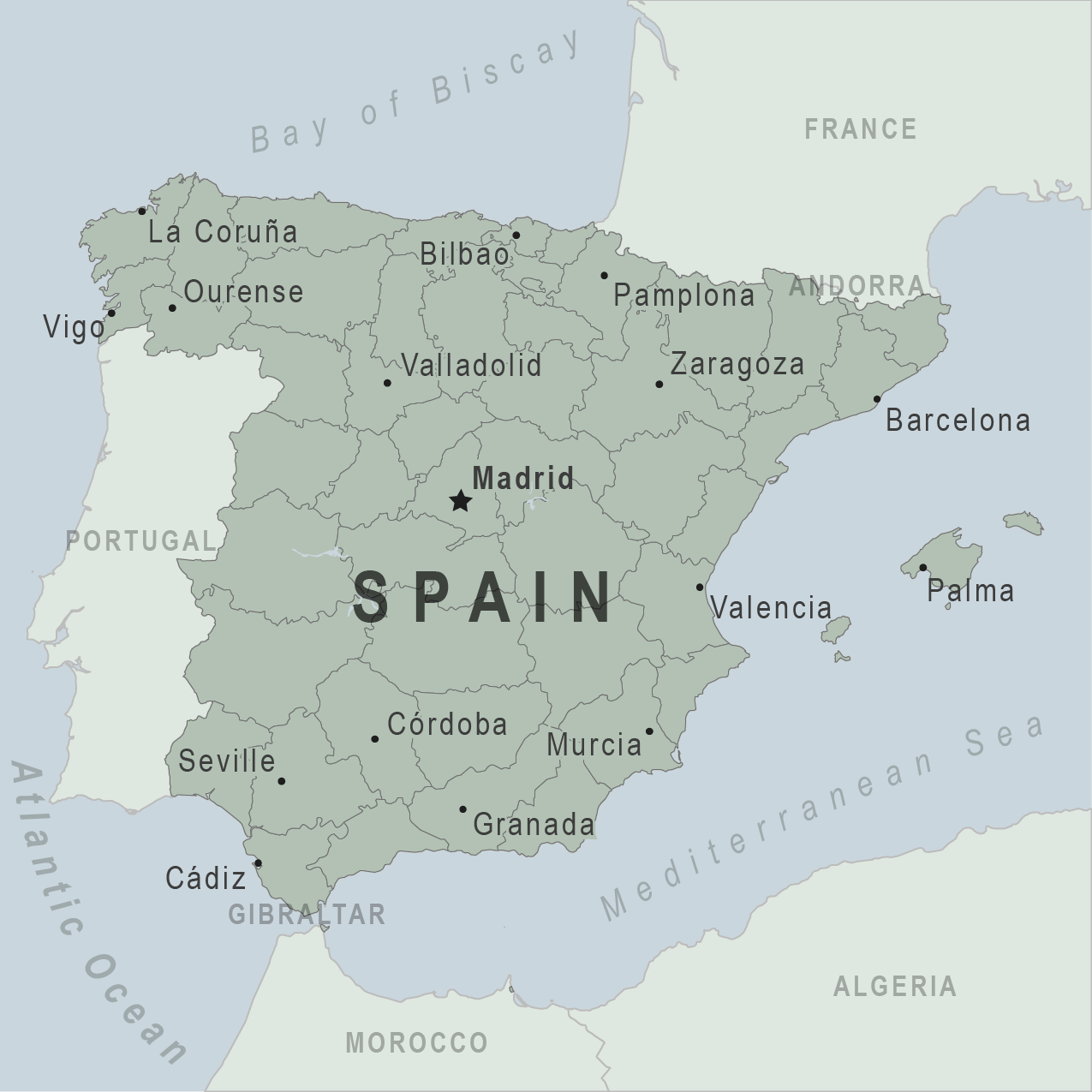
There are no notices currently in effect for Spain.
⇧ Top
Check the vaccines and medicines list and visit your doctor at least a month before your trip to get vaccines or medicines you may need. If you or your doctor need help finding a location that provides certain vaccines or medicines, visit the Find a Clinic page.
Routine vaccines
Recommendations.
Make sure you are up-to-date on all routine vaccines before every trip. Some of these vaccines include
- Chickenpox (Varicella)
- Diphtheria-Tetanus-Pertussis
- Flu (influenza)
- Measles-Mumps-Rubella (MMR)
Immunization schedules
All eligible travelers should be up to date with their COVID-19 vaccines. Please see Your COVID-19 Vaccination for more information.
COVID-19 vaccine
Hepatitis A
Consider hepatitis A vaccination for most travelers. It is recommended for travelers who will be doing higher risk activities, such as visiting smaller cities, villages, or rural areas where a traveler might get infected through food or water. It is recommended for travelers who plan on eating street food.
Hepatitis A - CDC Yellow Book
Dosing info - Hep A
Hepatitis B
Recommended for unvaccinated travelers younger than 60 years old traveling to Spain. Unvaccinated travelers 60 years and older may get vaccinated before traveling to Spain.
Hepatitis B - CDC Yellow Book
Dosing info - Hep B
Cases of measles are on the rise worldwide. Travelers are at risk of measles if they have not been fully vaccinated at least two weeks prior to departure, or have not had measles in the past, and travel internationally to areas where measles is spreading.
All international travelers should be fully vaccinated against measles with the measles-mumps-rubella (MMR) vaccine, including an early dose for infants 6–11 months, according to CDC’s measles vaccination recommendations for international travel .
Measles (Rubeola) - CDC Yellow Book
Spain is free of dog rabies. However, rabies may still be present in wildlife species, particularly bats. CDC recommends rabies vaccination before travel only for people working directly with wildlife. These people may include veterinarians, animal handlers, field biologists, or laboratory workers working with specimens from mammalian species.
Rabies - CDC Yellow Book
Avoid contaminated water
Leptospirosis
How most people get sick (most common modes of transmission)
- Touching urine or other body fluids from an animal infected with leptospirosis
- Swimming or wading in urine-contaminated fresh water, or contact with urine-contaminated mud
- Drinking water or eating food contaminated with animal urine
- Avoid contaminated water and soil
Clinical Guidance
Avoid bug bites.
Leishmaniasis
- Sand fly bite
- Avoid Bug Bites
Airborne & droplet
- Breathing in air or accidentally eating food contaminated with the urine, droppings, or saliva of infected rodents
- Bite from an infected rodent
- Less commonly, being around someone sick with hantavirus (only occurs with Andes virus)
- Avoid rodents and areas where they live
- Avoid sick people
Tuberculosis (TB)
- Breathe in TB bacteria that is in the air from an infected and contagious person coughing, speaking, or singing.
Learn actions you can take to stay healthy and safe on your trip. Vaccines cannot protect you from many diseases in Spain, so your behaviors are important.
Eat and drink safely
Food and water standards around the world vary based on the destination. Standards may also differ within a country and risk may change depending on activity type (e.g., hiking versus business trip). You can learn more about safe food and drink choices when traveling by accessing the resources below.
- Choose Safe Food and Drinks When Traveling
- Water Treatment Options When Hiking, Camping or Traveling
- Global Water, Sanitation and Hygiene | Healthy Water
- Avoid Contaminated Water During Travel
You can also visit the Department of State Country Information Pages for additional information about food and water safety.
Prevent bug bites
Although Spain is an industrialized country, bug bites here can still spread diseases. Just as you would in the United States, try to avoid bug bites while spending time outside or in wooded areas.
What can I do to prevent bug bites?
- Cover exposed skin by wearing long-sleeved shirts, long pants, and hats.
- Use an appropriate insect repellent (see below).
- Consider using permethrin-treated clothing and gear if spending a lot of time outside. Do not use permethrin directly on skin.
What type of insect repellent should I use?
- FOR PROTECTION AGAINST TICKS AND MOSQUITOES: Use a repellent that contains 20% or more DEET for protection that lasts up to several hours.
- Picaridin (also known as KBR 3023, Bayrepel, and icaridin)
- Oil of lemon eucalyptus (OLE) or para-menthane-diol (PMD)
- 2-undecanone
- Always use insect repellent as directed.
What should I do if I am bitten by bugs?
- Avoid scratching bug bites, and apply hydrocortisone cream or calamine lotion to reduce the itching.
- Check your entire body for ticks after outdoor activity. Be sure to remove ticks properly.
What can I do to avoid bed bugs?
Although bed bugs do not carry disease, they are an annoyance. See our information page about avoiding bug bites for some easy tips to avoid them. For more information on bed bugs, see Bed Bugs .
For more detailed information on avoiding bug bites, see Avoid Bug Bites .
Stay safe outdoors
If your travel plans in Spain include outdoor activities, take these steps to stay safe and healthy during your trip:
- Stay alert to changing weather conditions and adjust your plans if conditions become unsafe.
- Prepare for activities by wearing the right clothes and packing protective items, such as bug spray, sunscreen, and a basic first aid kit.
- Consider learning basic first aid and CPR before travel. Bring a travel health kit with items appropriate for your activities.
- If you are outside for many hours in the heat, eat salty snacks and drink water to stay hydrated and replace salt lost through sweating.
- Protect yourself from UV radiation : use sunscreen with an SPF of at least 15, wear protective clothing, and seek shade during the hottest time of day (10 a.m.–4 p.m.).
- Be especially careful during summer months and at high elevation. Because sunlight reflects off snow, sand, and water, sun exposure may be increased during activities like skiing, swimming, and sailing.
- Very cold temperatures can be dangerous. Dress in layers and cover heads, hands, and feet properly if you are visiting a cold location.
Stay safe around water
- Swim only in designated swimming areas. Obey lifeguards and warning flags on beaches.
- Do not dive into shallow water.
- Avoid swallowing water when swimming. Untreated water can carry germs that make you sick.
- Practice safe boating—follow all boating safety laws, do not drink alcohol if you are driving a boat, and always wear a life jacket.
Keep away from animals
Most animals avoid people, but they may attack if they feel threatened, are protecting their young or territory, or if they are injured or ill. Animal bites and scratches can lead to serious diseases such as rabies.
Follow these tips to protect yourself:
- Do not touch or feed any animals you do not know.
- Do not allow animals to lick open wounds, and do not get animal saliva in your eyes or mouth.
- Avoid rodents and their urine and feces.
- Traveling pets should be supervised closely and not allowed to come in contact with local animals.
- If you wake in a room with a bat, seek medical care immediately. Bat bites may be hard to see.
All animals can pose a threat, but be extra careful around dogs, bats, monkeys, sea animals such as jellyfish, and snakes. If you are bitten or scratched by an animal, immediately:
- Wash the wound with soap and clean water.
- Go to a doctor right away.
- Tell your doctor about your injury when you get back to the United States.
Reduce your exposure to germs
Follow these tips to avoid getting sick or spreading illness to others while traveling:
- Wash your hands often, especially before eating.
- If soap and water aren’t available, clean hands with hand sanitizer (containing at least 60% alcohol).
- Don’t touch your eyes, nose, or mouth. If you need to touch your face, make sure your hands are clean.
- Cover your mouth and nose with a tissue or your sleeve (not your hands) when coughing or sneezing.
- Try to avoid contact with people who are sick.
- If you are sick, stay home or in your hotel room, unless you need medical care.
Avoid sharing body fluids
Diseases can be spread through body fluids, such as saliva, blood, vomit, and semen.
Protect yourself:
- Use latex condoms correctly.
- Do not inject drugs.
- Limit alcohol consumption. People take more risks when intoxicated.
- Do not share needles or any devices that can break the skin. That includes needles for tattoos, piercings, and acupuncture.
- If you receive medical or dental care, make sure the equipment is disinfected or sanitized.
Know how to get medical care while traveling
Plan for how you will get health care during your trip, should the need arise:
- Carry a list of local doctors and hospitals at your destination.
- Review your health insurance plan to determine what medical services it would cover during your trip. Consider purchasing travel health and medical evacuation insurance for things your regular insurance will not cover.
- Carry a card that identifies, in the local language, your blood type, chronic conditions or serious allergies, and the generic names of any medicines you take.
- Bring copies of your prescriptions for medicine and for eye glasses and contact lenses.
- Some prescription drugs may be illegal in other countries. Call Spain’s embassy to verify that all of your prescription(s) are legal to bring with you.
- Bring all the medicines (including over-the-counter medicines) you think you might need during your trip, including extra in case of travel delays. Ask your doctor to help you get prescriptions filled early if you need to.
Many foreign hospitals and clinics are accredited by the Joint Commission International. A list of accredited facilities is available at their website ( www.jointcommissioninternational.org ).
Select safe transportation
Motor vehicle crashes are the #1 killer of healthy US citizens in foreign countries.
Be smart when you are traveling on foot.
- Use sidewalks and marked crosswalks.
- Pay attention to the traffic around you, especially in crowded areas.
- Remember, people on foot do not always have the right of way in other countries.
Riding/Driving
Choose a safe vehicle.
- Choose official taxis or public transportation, such as trains and buses.
- Make sure there are seatbelts.
- Avoid overcrowded, overloaded, top-heavy buses and minivans.
- Avoid riding on motorcycles or motorbikes, especially motorbike taxis. (Many crashes are caused by inexperienced motorbike drivers.)
- Choose newer vehicles—they may have more safety features, such as airbags, and be more reliable.
- Choose larger vehicles, which may provide more protection in crashes.
Think about the driver.
- Do not drive after drinking alcohol or ride with someone who has been drinking.
- Consider hiring a licensed, trained driver familiar with the area.
- Arrange payment before departing.
Follow basic safety tips.
- Wear a seatbelt at all times.
- Sit in the back seat of cars and taxis.
- When on motorbikes or bicycles, always wear a helmet. (Bring a helmet from home, if needed.)
- Do not use a cell phone or text while driving (illegal in many countries).
- Travel during daylight hours only, especially in rural areas.
- If you choose to drive a vehicle in Spain, learn the local traffic laws and have the proper paperwork.
- Get any driving permits and insurance you may need. Get an International Driving Permit (IDP). Carry the IDP and a US-issued driver's license at all times.
- Check with your auto insurance policy's international coverage, and get more coverage if needed. Make sure you have liability insurance.
- Avoid using local, unscheduled aircraft.
- If possible, fly on larger planes (more than 30 seats); larger airplanes are more likely to have regular safety inspections.
- Try to schedule flights during daylight hours and in good weather.
Helpful Resources
Road Safety Overseas (Information from the US Department of State): Includes tips on driving in other countries, International Driving Permits, auto insurance, and other resources.
The Association for International Road Travel has country-specific Road Travel Reports available for most countries for a minimal fee.
Maintain personal security
Use the same common sense traveling overseas that you would at home, and always stay alert and aware of your surroundings.
Before you leave
- Research your destination(s), including local laws, customs, and culture.
- Monitor travel advisories and alerts and read travel tips from the US Department of State.
- Enroll in the Smart Traveler Enrollment Program (STEP) .
- Leave a copy of your itinerary, contact information, credit cards, and passport with someone at home.
- Pack as light as possible, and leave at home any item you could not replace.
While at your destination(s)
- Carry contact information for the nearest US embassy or consulate .
- Carry a photocopy of your passport and entry stamp; leave the actual passport securely in your hotel.
- Follow all local laws and social customs.
- Do not wear expensive clothing or jewelry.
- Always keep hotel doors locked, and store valuables in secure areas.
- If possible, choose hotel rooms between the 2nd and 6th floors.
Healthy Travel Packing List
Use the Healthy Travel Packing List for Spain for a list of health-related items to consider packing for your trip. Talk to your doctor about which items are most important for you.
Why does CDC recommend packing these health-related items?
It’s best to be prepared to prevent and treat common illnesses and injuries. Some supplies and medicines may be difficult to find at your destination, may have different names, or may have different ingredients than what you normally use.
If you are not feeling well after your trip, you may need to see a doctor. If you need help finding a travel medicine specialist, see Find a Clinic . Be sure to tell your doctor about your travel, including where you went and what you did on your trip. Also tell your doctor if you were bitten or scratched by an animal while traveling.
For more information on what to do if you are sick after your trip, see Getting Sick after Travel .
Map Disclaimer - The boundaries and names shown and the designations used on maps do not imply the expression of any opinion whatsoever on the part of the Centers for Disease Control and Prevention concerning the legal status of any country, territory, city or area or of its authorities, or concerning the delimitation of its frontiers or boundaries. Approximate border lines for which there may not yet be full agreement are generally marked.
Other Destinations
If you need help finding travel information:
Message & data rates may apply. CDC Privacy Policy
File Formats Help:
- Adobe PDF file
- Microsoft PowerPoint file
- Microsoft Word file
- Microsoft Excel file
- Audio/Video file
- Apple Quicktime file
- RealPlayer file
- Zip Archive file
Exit Notification / Disclaimer Policy
- The Centers for Disease Control and Prevention (CDC) cannot attest to the accuracy of a non-federal website.
- Linking to a non-federal website does not constitute an endorsement by CDC or any of its employees of the sponsors or the information and products presented on the website.
- You will be subject to the destination website's privacy policy when you follow the link.
- CDC is not responsible for Section 508 compliance (accessibility) on other federal or private website.
Winter is here! Check out the winter wonderlands at these 5 amazing winter destinations in Montana
- Travel Destinations
How To See A Doctor In Spain As A Tourist
Published: November 8, 2023
Modified: December 28, 2023
by Eddie Kellam
- Plan Your Trip
- Travel Guide
- Travel Tips
Introduction
When traveling to a foreign country, it’s important to be prepared for any unexpected situations, including the need for medical attention. As a tourist visiting Spain, understanding how to navigate the healthcare system is essential to ensure your well-being and peace of mind during your stay.
The Spanish healthcare system is recognized for providing quality care and services to both residents and visitors. It operates on a universal healthcare model, which means that everyone has the right to access medical services, regardless of their nationality or insurance status. However, there are specific guidelines and procedures to follow as a tourist seeking healthcare services.
In this article, we will guide you through the process of seeing a doctor in Spain as a tourist. We’ll cover topics such as understanding the Spanish healthcare system, the importance of travel insurance, finding a doctor, making appointments, dealing with language barriers, payment and insurance coverage, prescription medications, and emergency care.
By familiarizing yourself with these essential aspects, you’ll be well-equipped to handle any medical situation that may arise during your visit to Spain.
Understanding the Spanish Healthcare System
The Spanish healthcare system is known for its high quality of care and accessibility. It is based on a universal healthcare model, which means that all residents and visitors have the right to access medical services. However, as a tourist, there are certain considerations to keep in mind when seeking healthcare in Spain.
In Spain, healthcare is provided through a combination of public and private sectors. The public healthcare system, known as Seguridad Social, is funded through taxes and social security contributions. It provides comprehensive healthcare coverage to all Spanish citizens and legal residents. As a tourist, you may also be eligible for free or subsidized healthcare if your country has a reciprocal healthcare agreement with Spain.
However, it is crucial to note that healthcare coverage can vary depending on your situation. While some healthcare services may be available to tourists free of charge, others may require payment. Therefore, it is highly recommended to have travel insurance that covers medical expenses during your stay in Spain.
In addition to the public healthcare system, Spain has a well-developed private healthcare sector. Private healthcare providers offer a range of services, including medical consultations, specialist appointments, diagnostic tests, and hospital care. Keep in mind that private healthcare services are typically more expensive than their public counterparts, and they may not be covered by your travel insurance.
Overall, navigating the Spanish healthcare system as a tourist requires understanding the differences between public and private healthcare, knowing your eligibility for free or subsidized care, and having appropriate travel insurance coverage.
The Importance of Travel Insurance
When traveling to Spain or any other country, it is essential to have travel insurance that includes comprehensive medical coverage. This is crucial for several reasons:
1. Access to Medical Services: Travel insurance ensures that you have access to medical services in case of illness or injury during your trip. It covers the cost of medical consultations, hospital stays, emergency medical treatments, and medications.
2. Financial Protection: Medical expenses can be very costly, especially if you require hospitalization or specialized care. Travel insurance protects you from the financial burden of these expenses, ensuring that you receive the necessary treatment without worrying about the cost.
3. Peace of Mind: Knowing that you are covered by travel insurance provides peace of mind and allows you to enjoy your trip without the stress and worry of potential medical expenses. It allows you to fully immerse yourself in the culture and activities of Spain.
4. Emergency Medical Evacuation: In cases where specialized medical treatment is not available locally, travel insurance can cover the cost of emergency medical evacuation to a nearby country or back to your home country. This ensures that you receive the necessary care in a timely manner.
5. Trip Cancellation or Interruption: Travel insurance can also protect you in the event of trip cancellation or interruption due to unforeseen circumstances, such as a medical emergency. It can provide coverage for pre-paid expenses, such as flights and accommodations.
It is important to carefully review the terms and coverage of your travel insurance policy before your trip to ensure that it meets your specific needs. Consider factors such as the coverage limits, deductibles, exclusions, and any additional benefits offered by the policy.
In summary, travel insurance is a vital component of your travel preparations to Spain. It provides the necessary protection and peace of mind, allowing you to explore the country with confidence, knowing that you have access to medical services and financial support if needed.
Finding a Doctor in Spain
If you find yourself in need of medical attention while in Spain, it’s important to know how to find a doctor. Here are some tips to help you navigate the process:
1. Research: Before your trip, it’s a good idea to research the healthcare options in the area you’ll be visiting. Look for hospitals, medical clinics, and doctors who speak your language if language barrier is a concern.
2. Ask for Recommendations: If you’re staying in a hotel or rental accommodation, ask the staff or owner if they can recommend a local doctor or medical center that caters to tourists. They may have contacts or knowledge about English-speaking doctors.
3. Use Online Directories: Online directories such as Google Maps or specific healthcare websites can be valuable resources for finding doctors in Spain. You can search for doctors based on location, specialty, and patient reviews.
4. Seek Assistance from Your Embassy or Consulate: If you’re in need of urgent medical care or having difficulty finding a doctor, reach out to your country’s embassy or consulate in Spain. They can provide you with a list of recommended doctors or assist you in getting the necessary medical attention.
5. Contact Your Travel Insurance Provider: If you have travel insurance, contact your provider for assistance in finding a doctor. They may have a network of medical professionals they work with and can provide you with the necessary information and guidance.
It’s important to note that in Spain, many general practitioners work in private practices and require appointments. However, there are also walk-in medical centers known as “centros de salud” where you can receive non-emergency medical care without an appointment. These centers often have both Spanish-speaking and English-speaking doctors.
When choosing a doctor, consider their location, availability, and any specific requirements you may have. It’s also important to check if they accept your travel insurance, as some doctors may only work with certain insurance providers.
By following these tips and utilizing the available resources, you can find a doctor in Spain who can provide you with the necessary medical care during your stay.
Making an Appointment
When seeking medical care in Spain, it is common to make an appointment with a doctor, unless you are visiting a walk-in medical center for non-emergency care. Here are some steps to help you make an appointment:
1. Choose a Doctor: Based on your research and recommendations, select a doctor or medical center that aligns with your needs, such as a specialist or a general practitioner who speaks your language.
2. Contact the Doctor’s Office: Call the doctor’s office or medical center to schedule an appointment. Be prepared with your preferred date and time, and be aware that you may need to wait a few days or even weeks for an available appointment, depending on the doctor’s availability.
3. Provide Necessary Information: When making the appointment, be ready to provide your name, contact information, nationality, and any relevant details about your symptoms or medical condition. If you have travel insurance, inform the doctor’s office about your provider and policy information.
4. Confirm the Appointment: After scheduling the appointment, ask for a confirmation of the date, time, and any additional instructions. This will help ensure that both parties are on the same page and there are no misunderstandings.
5. Arrival and Check-in: On the day of your appointment, arrive a few minutes early and check in at the reception desk. Provide your name and any necessary documents or identification as requested by the doctor’s office.
6. Communicate Any Changes or Cancellations: If you need to change or cancel your appointment, notify the doctor’s office as soon as possible. This will allow them to offer the appointment slot to another patient and potentially reschedule your appointment, if needed.
It’s important to note that in some cases, you may encounter language barriers when scheduling appointments over the phone. If you are not comfortable communicating in Spanish, consider asking a bilingual friend or using a translation service to assist you.
Remember to keep track of your appointment details and any necessary documents, such as your travel insurance information and identification, to ensure a smooth and efficient process.
By following these steps, you can easily make an appointment with a doctor in Spain and receive the necessary medical care during your visit.
Visiting the Doctor’s Office
Once you have made an appointment with a doctor in Spain, it’s important to be prepared for your visit to the doctor’s office. Here are some key points to keep in mind:
1. Arrive on Time: It’s important to arrive at the doctor’s office on time or a few minutes early. Punctuality is respected in Spain, and it ensures that other patients are not kept waiting due to delays.
2. Bring Necessary Documents: Carry your identification, such as your passport or ID card, and any additional documents requested by the doctor’s office. This may include your travel insurance information, medical history, prescription medications, or any relevant test results.
3. Be Prepared to Wait: Depending on the doctor’s schedule and the number of patients, there may be some wait time at the office. Consider bringing a book, magazine, or any other form of entertainment to make the wait more enjoyable.
4. Consultation with the Doctor: During your meeting with the doctor, be prepared to discuss your symptoms, medical history, and any concerns you may have. Provide accurate and detailed information to help the doctor make an accurate diagnosis and recommend appropriate treatments.
5. Ask Questions: Don’t hesitate to ask questions or seek clarification about your condition, treatment options, medications, or any other aspect of your healthcare. It’s important to fully understand the information provided to you and actively participate in your healthcare decisions.
6. Follow the Doctor’s Recommendations: The doctor may prescribe medications, recommend diagnostic tests, or provide instructions for follow-up appointments. It is important to carefully follow their recommendations and adhere to the prescribed treatment plan.
7. Request a Medical Report or Prescription: If needed, ask the doctor for a medical report summarizing your consultation or a prescription for any medication prescribed. These documents can be useful for insurance claims or future medical consultations.
8. Payment and Insurance Coverage: Before leaving the doctor’s office, inquire about the payment process and ensure that your travel insurance coverage will be accepted. Be prepared to pay for any out-of-pocket expenses that may not be covered by your insurance.
By being prepared and informed, your visit to the doctor’s office in Spain can be a smooth and productive experience. Remember to communicate openly with the doctor, ask any necessary questions, and follow their recommendations for the best possible healthcare outcome.
Language Barrier and Communication
One potential challenge that tourists may face when visiting a doctor in Spain is the language barrier. While many doctors and medical professionals in popular tourist areas may speak some English or other foreign languages, it is not always guaranteed. Here are some tips to help overcome the language barrier and ensure effective communication:
1. Bilingual Staff: Look for doctors or medical centers that advertise English-speaking services. They are accustomed to working with international patients and can provide assistance in your preferred language.
2. Interpreter Services: If an English-speaking doctor is not available, inquire whether the doctor’s office offers interpreter services. Some medical facilities have interpreters who can assist during the consultation, ensuring accurate communication between you and the doctor.
3. Prepare in Advance: It can be helpful to prepare a list of symptoms, medical history, and any relevant information in both English and Spanish. This can assist the doctor in understanding your condition and facilitate effective communication.
4. Use Translation Apps or Resources: Carry a translation app or dictionary on your smartphone to help with basic conversations and terminology. These tools can be useful for translating simple phrases or questions on the spot.
5. Seek Assistance: If you are struggling to communicate, don’t hesitate to ask for help. Many Spanish locals and healthcare professionals are friendly and understanding, and they may be willing to assist in communicating your needs to the doctor.
6. Non-Verbal Communication: In some cases, non-verbal communication can be helpful. This includes gestures, facial expressions, and pointing to the affected area of your body to convey your symptoms or concerns.
7. Bring a Bilingual Companion: If possible, bring a friend or family member who is fluent in both English and Spanish. They can act as a translator, ensuring that there is clear communication between you and the doctor.
Remember, effective communication is essential for accurate diagnosis and treatment. Take your time, be patient, and don’t hesitate to ask for clarification if something is unclear. The goal is to ensure that both you and the doctor understand each other to provide the best healthcare experience possible.
Payment and Insurance Coverage
Understanding the payment process and insurance coverage is crucial when seeking medical care in Spain. Here’s what you need to know:
1. Public Healthcare System: If you are eligible for free or subsidized healthcare in Spain due to a reciprocal healthcare agreement between your country and Spain, you may not have to pay for medical services. However, it’s important to confirm your eligibility beforehand and bring the necessary documentation.
2. Private Healthcare System: If you seek medical care from private doctors or medical centers, you will likely have to pay for the services rendered. Private healthcare services are typically more expensive than those in the public sector. It’s important to clarify the payment terms and fees with the healthcare provider before the appointment.
3. Travel Insurance: Having travel insurance that includes medical coverage is highly recommended. Before your trip, review your insurance policy to understand the coverage limits and any exclusions. Familiarize yourself with the procedure for submitting insurance claims, including obtaining necessary documentation from the doctor’s office.
4. Co-Payments and Deductibles: Some insurance policies may require co-payments or deductibles, which are out-of-pocket expenses that you must pay before the insurance coverage kicks in. Make sure to understand these terms, as they can affect your overall expenses.
5. Direct Billing: In certain cases, doctors or medical centers may offer direct billing services with travel insurance providers. This means that they will bill the insurance company directly, eliminating the need for you to pay upfront and submit claims afterward. Check with the doctor’s office to see if this option is available.
6. Retain All Receipts: Keep a record of all receipts, invoices, and medical reports related to your consultations and treatments. This documentation is essential for insurance claims and reimbursement, if applicable.
7. Prescription Medication: If you are prescribed medication, ask the doctor to provide you with a written prescription. Check if your travel insurance covers the cost of prescription medications, and inquire about any specific procedures for obtaining them at a pharmacy.
It’s important to note that payment and insurance coverage can vary depending on your specific insurance policy and the healthcare provider you visit. Before seeking medical care in Spain, contact your insurance provider and the doctor’s office to understand the payment process and ensure that you are adequately covered.
By being knowledgeable about payment procedures and insurance coverage, you can navigate the healthcare system more confidently and avoid any unexpected financial burdens during your stay in Spain.
Prescription Medication
If you require prescription medication during your visit to Spain, here are some important points to keep in mind:
1. Carry Sufficient Supply: Before traveling to Spain, make sure you have an adequate supply of your prescription medication. It’s recommended to bring more than what you expect to use in case of any unforeseen delays or emergencies.
2. Bring a Written Prescription: It’s advisable to carry a written prescription for your medication from your home country. This can help facilitate the process of obtaining a refill or equivalent medication in Spain, especially if you need to see a doctor here.
3. Find a Pharmacy: Pharmacies in Spain are called “farmacias” and are recognizable by a green cross sign. Look for a nearby pharmacy and present your prescription to the pharmacist. They will provide you with the necessary medication or offer suitable alternatives if your specific brand is not available.
4. Obtain a Local Prescription: If you run out of medication or need a refill during your stay in Spain, you may need to consult a local doctor to obtain a new prescription. Bring your medical records, prescription information, and any supporting documents to assist the doctor in understanding your medical condition and needs.
5. Insurance Coverage: Check with your travel insurance provider to understand if prescription medications are covered. Some policies may reimburse the cost of necessary medications, while others may require the upfront payment, which can later be claimed for reimbursement.
6. Over-the-Counter (OTC) Medications: Basic over-the-counter medications, such as pain relievers, cold and flu remedies, and common first aid supplies, can be purchased at a pharmacy without a prescription. However, it’s important to consult a pharmacist or read labels to ensure the suitability and proper usage of these OTC medications.
7. Medication Restrictions: Keep in mind that Spain, like many countries, may have restrictions on certain medications. It’s important to research and be aware of any specific regulations or limitations before traveling. This includes medication that may be legal in your home country but may be controlled or restricted in Spain.
8. Declare Medication at Customs: If you are carrying prescription medication when entering or leaving Spain, be sure to declare it at customs. This is especially important if you are carrying large quantities or medications that are subject to regulations or restrictions.
Remember, it’s always best to consult with a healthcare professional for specific guidance regarding your medications and to ensure your safety and compliance with local laws and regulations.
By following these guidelines and taking necessary precautions, you can ensure access to the prescription medication you need while visiting Spain.
Emergencies and Hospital Care
In the event of a medical emergency during your visit to Spain, it’s important to know how to access immediate care and navigate the hospital system. Here are some key points to keep in mind:
1. Emergency Services: In case of a life-threatening emergency, dial the emergency services number in Spain, which is 112. This number can be used for medical emergencies, as well as for reporting accidents, fires, or other emergencies.
2. Hospital Emergency Departments: If you require immediate medical attention but it is not a life-threatening emergency, you can visit the emergency department of a hospital. Spanish hospitals have well-equipped emergency departments that operate 24/7 and provide specialized care in case of urgent medical needs.
3. Ambulance Services: If you are unable to get to the hospital yourself or require medical assistance at the scene, you can call for an ambulance. Dial 112 and explain the situation to the operator. They will dispatch an ambulance to your location to transport you to the nearest hospital.
4. Travel Insurance Coverage: It’s important to ensure that your travel insurance provides coverage for emergency medical services and hospital care. Familiarize yourself with the terms and conditions of your policy, including any limitations or exclusions for emergencies.
5. Hospital Registration: When you arrive at the hospital, whether by ambulance or on your own, you will need to register at the reception desk. Provide your identification, insurance information (if applicable), and any other necessary documents. This will start the process of receiving medical care.
6. Language Assistance: In emergency situations, language barriers can be especially challenging. Hospitals in popular tourist areas often have staff or interpreters who can assist with translation. If necessary, you can also ask a bilingual friend or use a translation app to help communicate your needs and medical history.
7. Follow-up Care: After receiving emergency care, the hospital may provide you with instructions for follow-up care or referrals to specialists if needed. It’s important to follow these instructions and seek any necessary follow-up appointments or treatments to ensure your continued well-being.
8. Keep Documentation: Make sure to keep a record of all medical documents, reports, and receipts related to your emergency care. These documents are important for insurance claims and reimbursement, if applicable.
In case of a medical emergency, it’s crucial to act swiftly and seek the appropriate medical care. By being aware of the emergency services available in Spain and understanding how to navigate the hospital system, you can ensure prompt and effective care during challenging situations.
Traveling to Spain as a tourist can be an exciting and enriching experience, and knowing how to navigate the healthcare system is essential for your well-being and peace of mind. By following the guidelines outlined in this article, you can confidently seek medical care and manage any unexpected health issues that may arise during your visit.
Understanding the Spanish healthcare system, the importance of travel insurance, and finding a doctor are key aspects of ensuring quality care. Making appointments, visiting the doctor’s office, and communicating effectively, especially in the face of language barriers, are crucial for a positive healthcare experience.
Being familiar with payment and insurance coverage and knowing how to access prescription medications and handle emergencies are vital components of your healthcare journey in Spain.
Remember, preparation is key. Research healthcare options, have a comprehensive travel insurance plan in place, and carry necessary documentation. Keep track of your medical records, prescriptions, and receipts as you navigate the healthcare system.
Whether you enjoy the stunning beaches of Costa del Sol, immerse yourself in the rich history of Barcelona, or explore the vibrant city life of Madrid, you can rest assured that the Spanish healthcare system is well-equipped to address your healthcare needs as a tourist.
By arming yourself with knowledge and being proactive in seeking appropriate healthcare, you can fully enjoy your time in Spain and have peace of mind knowing that you are prepared for any healthcare situation that may arise during your visit.

- Privacy Overview
- Strictly Necessary Cookies
This website uses cookies so that we can provide you with the best user experience possible. Cookie information is stored in your browser and performs functions such as recognising you when you return to our website and helping our team to understand which sections of the website you find most interesting and useful.
Strictly Necessary Cookie should be enabled at all times so that we can save your preferences for cookie settings.
If you disable this cookie, we will not be able to save your preferences. This means that every time you visit this website you will need to enable or disable cookies again.

- Medical Tourism
- Ophthalmology
Eye Surgery in Spain
Browse by city:.

Vithas Xanit International Hospital
- Private Hospital,
- Malaga, Spain
We use our eyes to see life and so Vithas Xanit International Hospital has developed a highly influential Ophthalmology Department in this area. Our strong vision care programme has made us the first private hospital in the province to have a surgery for evaluating and treatment of poor vision.
- View profile
- Request Info
Listed ophthalmologist:

Dr. Angel Cilveti
Head of The Ophthalmology Department
Available ophthalmology services:

Sanitas Hospitales
- Sanitas Hospitales,
- Madrid, Spain
The goal is to preserve and restore vision through excellence in provision of eye care services, medical education, and clinical research. The physicians have earned national and international recognition as clinicians and educators.

Hospital Quirónsalud Malaga
With more than 36 medical specialties, 200 physicians and surgeons of the highest level, Quironsalud Hospital Malaga is one of the most pertinent hospitals in Spain.

Instituto Oftalmológico Quirónsalud Dexeus
- Ophthalmology Clinic,
- Barcelona, Spain
Institut Omiq Oftalmologia Medica's Medical and Surgical activity is developed in all areas and specialities in Ophthalmology. They provide the most modern, latest and complete diagnostic and therapeutic equipment.
18 listed ophthalmologists:
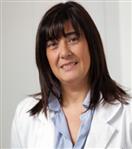
Dr. Mercè Guarro MD
OMIQ Medical Director

Dr. Laura Sararols MD
Head of the Vitreo-Retinal Unit

Instituto de Microcirugía Ocular (IMO Barcelona)
The Instituto de Microcirugía Ocular (IMO – Institute of Ocular Microsurgery in English) is a leading international ophthalmology centre. Their hallmark is medical excellence and our objective is to provide the best service to the patient.
32 listed ophthalmologists:

Dr. Borja Corcóstegui
Co-founder and medical director of IMO

Dr. Isabel Nieto
Complex Cataract Specialist
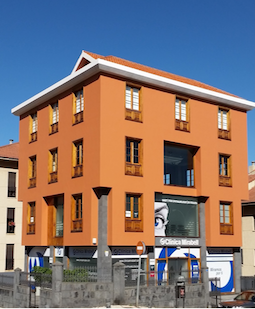
Clínica Mirabell
- Eye Clinic,
- Tenerife, Spain
CLÍNICA MIRABELL is one of the leading private ophthalmological centres in the Canary Islands. We improve our patients' quality of life protecting, treating and enhancing their vision and the aesthetics of their eye area.
5 listed ophthalmologists:

Dra. Patricia Martínez García
Specialist in Anterior Segment, Cataract and Glaucoma

Dr. Ricardo Herrera Piñero
Specialist in Anterior Segment, Cataract and Refractive Surgery

Institut Comtal d'Oftalmologia
- Ophtalmology Clinic,
Innova Ocular ICO Barcelona is one of the most important ophthalmology and ocular microsurgery institutes in central Barcelona, and an industry leader at both the national and international level.
8 listed ophthalmologists:

Dr. David Andreu
General Manager

Dra. Susana Duch
Scientific Director, Head of the Glaucoma Unit and Ocular Trauma Unit / Specialist, Ocular Genetics Unit

Instituto Balear de Oftalmología (IBO)
- Palma de Mallorca, Spain
The Balearic Institute of Ophthalmology – IBO is part of VISTA Oftalmólogos network of ophthalmic clinics.
17 listed ophthalmologists:

Dr. Alfonso Castanera De Molina
Specialist in Paediatric Ophthalmology and Strabismus

Dr. Mutassem Dajani
Specialist in General Ophthalmology

Hospital Quirónsalud Torrevieja
- Torrevieja (Alicante), Spain
Quironsalud Hospital Torrevieja is an ISO-certified private hospital located in the north of Torrevieja, championing excellence in cancer treatment and management. IMTJ Best International Hospital of the world (awards 2017)

Nisa Pardo de Aravaca Hospital
A modern (opened in 2007), general, private hospital located in Madrid, part of the NISA group of hospitals. The international patients department can assist patients with accomodation and trasportation, and can communicate in English as well as in Spanish.
Ophthalmology centers in Spain (Page 1 of 3)
Ophthalmology in spain:, browse spain ophthalmology centers by specialty.
- Corneal Transplant
- Intraocular Lens Implants (IOL)
- SBK Surgery (Sub-Bowman’s Keratomileusis)
- Phacoemulsification Surgery (Phaco)
- Extracapsular Cataract Extraction
- Ocular Prosthesis (Artificial Eye)
- Scleral Buckling Surgery
- Eye Muscle Surgery
- Pneumatic Retinopexy
- Squint (Lazy Eye)
- Retinal Detachment
- Ptosis (Drooping Eyelid)
- Astigmatism
- Retinoblastoma (Eye Cancer)
Sub-Specialties
- Oculofacial Plastic Surgery
- Retina and Vitreous
- Cornea and External Diseases
- Pediatric Ophthalmology
- Neuro-ophthalmology
- Refractive Surgery
Examinations \ Diagnostics
- Vision Checkup
Browse by country
Quick links.
- Advertising
- How it Works
- Destinations
- Information
- Terms of use
Featured Cities
- Buenos Aires
- Kuala Lumpur
- Petaling Jaya
Featured Specialties
- Cancer Treatment
- Cardiac Surgery
- Cosmetic Surgery
- Fertility Treatment
- Orthopedic Surgery
- View More Specialties

Copyright © 2008 - 2024 Health-Tourism.com, All Rights Reserved
Situation in Haiti March 29, 2024
U.s. citizens in haiti, update january 10, 2024, information for u.s. citizens in the middle east.
- Travel Advisories |
- Contact Us |
- MyTravelGov |
Find U.S. Embassies & Consulates
Travel.state.gov, congressional liaison, special issuance agency, u.s. passports, international travel, intercountry adoption, international parental child abduction, records and authentications, popular links, travel advisories, mytravelgov, stay connected, legal resources, legal information, info for u.s. law enforcement, replace or certify documents.
Before You Go
Learn About Your Destination
While Abroad
Emergencies
Share this page:
Travel Advisory July 26, 2023
Spain - level 2: exercise increased caution.
Reissued with obsolete COVID-19 page links removed.
Exercise increased caution in Spain due to terrorism and civil unrest .
Country Summary: Terrorist groups continue plotting possible attacks in Spain. Terrorists may attack with little or no warning, targeting tourist locations, transportation hubs, markets/shopping malls, local government facilities, hotels, clubs, restaurants, places of worship, parks, major sporting and cultural events, educational institutions, airports, and other public areas.
Demonstrations are common. They may take place in response to political or economic issues, on politically significant holidays, and during international events.
Read the country information page for additional information on travel in Spain.
If you decide to travel to Spain:
- Avoid demonstrations and crowds.
- Be aware of your surroundings when traveling to tourist locations and crowded public venues.
- Follow the instructions of local authorities.
- Monitor local media for breaking events and adjust your plans based on new information.
- Enroll in the Smart Traveler Enrollment Program ( STEP ) to receive Alerts and make it easier to locate you in an emergency.
- Follow the Department of State on Facebook and Twitter .
- Review the Country Security Report for Spain.
- Visit the CDC page for the latest Travel Health Information related to your travel.
- Prepare a contingency plan for emergency situations. Review the Traveler’s Checklist .
Embassy Messages
View Alerts and Messages Archive
Quick Facts
6 months recommended, 3 months beyond your date of departure is required
1 page per stamp
None required for less than 90 days
Embassies and Consulates
U.S. Embassy Madrid Calle Serrano, 75 28006 Madrid, Spain Telephone: (34) 91-587-2200 Emergency after-hours telephone: (34) 91-587-2200 Fax: (34) 91-587-2303 E-mail: [email protected]
U.S. Consulate General Barcelona Paseo Reina Elisenda de Montcada, 23 08034 Barcelona, Spain Telephone: (34) 93-280-2227 Emergency after-hours telephone: (34) 91-587-2200 Fax: (34) 93-280-6175 E-mail: [email protected]
U.S. Consular Agency Fuengirola (Málaga) Avenida Juan Gómez "Juanito", 8 Edificio Lucía 1º-C 29640 Fuengirola (Málaga), Spain Telephone: (34) 95-247-4891 Fax: (34) 95-246-5189 E-mail: [email protected]
U.S. Consular Agency Las Palmas Edificio Arca Calle Los Martinez de Escobar 3, Oficina 7 35007 Las Palmas, Gran Canaria, Spain Telephone: (34) 92-827-1259 Fax: (34) 92-822-5863 E-mail: [email protected]
U.S. Consular Agency Palma de Mallorca Edificio Reina Constanza Porto Pi, 8, 9-D 07015 Palma, Islas Baleares, Spain Telephone: (34) 97-140-3707 Fax: (34) 97-140-3971 E-mail: [email protected]
U.S. Consular Agency Seville Plaza Nueva 8-8 duplicado 2nd Floor, Office E-2 No.4 41101 Sevilla, Spain Telephone: (34) 95-421-8751 Fax: (34) 95-422-0791 E-mail: [email protected]
U.S. Consular Agency Valencia Doctor Romagosa 1, 2-J 46002 Valencia, Spain Telephone: (34) 96-351-6973 Fax: (34) 96-352-9565 E-mail: [email protected]
Destination Description
See the Department of State’s Fact Sheet on Spain for information on U.S.-Spain relations.
Entry, Exit and Visa Requirements
U.S. citizens traveling to Spain are not subject to any COVID-19 entry restrictions.
Spain is a party to the Schengen Agreement . This means that U.S. citizens may enter Spain for up to 90 days for tourism or business without a visa. Your passport should be valid for at least three months beyond the period of stay. You must have sufficient funds and a return airline ticket. Visit the Embassy of Spain website for the most current visa information.
Traveling Through Europe : If you are planning to visit, transit and/or travel through European countries, you should be familiar with the requirements of the Schengen Agreement.
- Your passport should be valid for at least three months beyond the period of stay. If you plan on transiting a Schengen country, review our U.S. Travelers in Europe page .
- You will need sufficient proof of funds and a return plane ticket .
- For additional information about visas for the Schengen area, see the Schengen Visa page.
Students and athletes: Students, prospective students, and athletes should visit the Embassy of Spain website for additional information on entry requirements. You should not travel to Spain as a student or for an athletic/study program without the appropriate Spanish visa. U.S. citizen students and athletes have been denied entry and held in immigration detention at Spanish airports awaiting return flights to the United States because they lacked the appropriate visa. If your coach or sponsoring program says that you do not require a visa to study, play for a sports team, or participate in a sports training program in Spain, you should confirm this information with the nearest Spanish consulate in the United States before you travel.
U.S. citizen minors living in Spain: Spanish law mandates that all Spanish minors traveling internationally without their parents or legal guardians must have written notarized permission from a parent or guardian. The law also applies to foreign, minor residents if their country of nationality also requires parental permission. While U.S. law does not require minors traveling without a parent/guardian to have the parents’/guardians’ written permission, Spanish authorities and airlines have occasionally misinterpreted the law and stopped U.S. citizens minors from departing the country. Therefore, parents/legal guardians should consider preparing a notarized, written permission for their U.S. citizen minor children to travel abroad unaccompanied or with a third party.
HIV/AIDS restrictions: The U.S. Department of State is unaware of any HIV/AIDS entry restrictions for visitors to or foreign residents of Spain.
Find information on dual nationality , prevention of international child abduction , and customs regulations on our websites.
Safety and Security
Terrorism: Terrorist groups and those inspired by such organizations are intent on encouraging or conducting attacks worldwide, including within Europe. Terrorists are increasingly using less sophisticated methods of attack – including knives, firearms, and vehicles – to target crowds more effectively. Frequently, their aim is unprotected or vulnerable targets, such as:
- High-profile public events (sporting contests, political rallies, demonstrations, holiday events, celebratory gatherings, etc.)
- Hotels, clubs, and restaurants frequented by tourists
- Places of worship
- Schools
- Parks
- Shopping malls and markets
- Public transportation systems (including subways, buses, trains, and scheduled commercial flights)
Spain’s open borders with its Western European neighbors allow the possibility for terrorists to enter and exit the country anonymously. Additionally, Spain’s enclaves in Melilla and Ceuta on the North African coast allow for entry into Spain from the African continent. Spain has taken robust actions to guard against terrorist attacks, including arrests of suspected extremists allegedly involved in terrorist plots. Credible information indicates terrorist groups continue to plot potential attacks in Europe, including Spain.
For more information, see our Terrorism page.
Crime: Pickpocketing and other minor crimes, such as theft, are very common in Spain including instances where the victim is purposefully distracted to facilitate the theft. Street crimes against U.S. citizens usually occur in tourist areas, including airports, train stations, and both urban and beach destinations .
Violent crimes, including robberies, have also been reported. Some instances have required the victim to seek medical attention. Car break-ins are also frequent in Spain.
Use common sense, awareness and the same personal security measures you would normally use in any large city or tourist destination.
Keep track of your passport at all times, including on flights and other modes of transportation. There have been reports of passports being stolen on planes en route to Spain. Do not leave bags unattended. Keep them in sight and avoid placing passports, cash, cell phones, or other valuables in the outer pockets of backpacks or purses on tables or floors, grounds in public places. Do not leave bags slung over the backs of chairs, on hotel or store counters, on top of your suitcase or travel bag, or out of your physical control in hotel lobbies, car rental locations, train stations, restaurants, and other public places. Avoid carrying your passport unless needed for travel, especially in tourist areas. Instead, carry a photocopy or photo of your passport’s biographical information page and consider leaving your passport in a secure location, such as a hotel safe. Your passport will be required to check in into any hotel in Spain and may be required for trains or tourist sites.
Sexual Assault: The U.S. Mission in Spain has received numerous reports of sexual assaults affecting U.S. citizens, especially younger travelers, students, and exchange teachers.
Navigating the Spanish criminal justice system after surviving a sexual assault has been difficult for many U.S. citizen victims, who report feeling judged and re-victimized throughout the very lengthy process.
Although it is not required, many U.S. citizen victims of sexual assault in Spain have found it helpful to hire a local attorney to be their advocate and defend their rights during any judicial process or use the help of the local Office of Victim’s Assistance. Information about the local victim’s assistance program is given out at the police station when the report is filed.
There have been numerous reports alleging sexual assaults against U.S. citizen students by Manuel Blanco Vela, a representative of a tour operator based in Seville, Spain. Conduct research online to determine who owns and operates tour companies to make informed choices.
Many sexual assaults occur at night or during the early morning hours. In most cases, assailants take advantage of alcohol or drugs to make victims more vulnerable.
Domestic Violence: U.S. citizen victims of domestic violence should call the toll-free emergency number in Spain, 016, for assistance, and the U.S. Embassy in Madrid at (34) 91-587-2200 or U.S. Consulate General Barcelona at (+34) 93-280-2227. Note that the local authorities are responsible for investigating and prosecuting crimes.
Victims of Crime: U.S. citizen victims of domestic violence, sexual assault or other violent crimes are encouraged to report crimes to the local emergency services at 112 and contact the U.S. Embassy, Consulate, or consular agency for assistance . Note that local authorities are responsible for investigating and prosecuting crime.
See our webpage on help for U.S. victims of crime overseas .
- Help you find appropriate medical care
- Assist you in reporting a crime to the police
- Contact relatives or friends with your written consent
- Provide general information regarding the victim’s role during the local investigation and following its conclusion
- Provide a list of local attorneys
- Provide information on victim’s compensation programs in the United States
- Provide an emergency loan for repatriation to the United States and/or limited medical support in cases of destitution
- Help you find accommodation and arrange flights home
- Replace a stolen or lost passport
Demonstrations occur frequently. They may take place in response to political or economic issues, on politically significant holidays, and during international events.
- Demonstrations can be unpredictable, avoid areas around protests and demonstrations .
- Past demonstrations have turned violent.
- Check local media for updates and traffic advisories.
International Financial Scams: See the Department of State and the FBI pages for information.
Financial scams are prevalent in Spain. Beware of anyone asking for money, particularly people who establish a “romantic” relationship online or anyone who claims the Spanish authorities are asking them for money. Scams are often initiated through Internet postings/profiles or by unsolicited emails and letters. Scammers almost always pose as U.S. citizens who have no one else to turn to for help. Common scams include:
- People claiming to be U.S. military personnel
- Romance/Online dating
- Money transfers
- Grandparent/Relative targeting
- Free Trip/Luggage
- Lotteries
- Inheritance notices
- Work permits/Job offers
Tourism: The tourism industry is generally regulated, and rules [with regards to best practices and safety inspections] are regularly enforced. Hazardous areas/activities are identified with appropriate signage, and professional staff is typically on hand in support of organized activities. In the event of an injury, appropriate medical treatment is widely available throughout the country. Outside of a major metropolitan center, it may take more time for first responders and medical professionals to stabilize a patient and provide life-saving assistance. U.S. citizens are encouraged to purchase medical evacuation insurance .
Local Laws & Special Circumstances
Criminal Penalties: You are subject to local laws. If you violate local laws, even unknowingly, you may be expelled, arrested, or imprisoned. Individuals establishing a business or practicing a profession that requires additional permits or licensing should seek information from the competent local authorities prior to practicing or operating a business.
Furthermore, some violations of laws are also prosecutable in the United States, regardless of local law. For examples, see our website on crimes against minors abroad and the Department of Justice website.
Penalties for possessing, using, or trafficking illegal drugs in Spain are severe and convicted offenders can expect long jail sentences and heavy fines.
Most cities in Spain have banned the consumption of alcohol in the street, other than in registered street cafes and bars. You could be arrested or fined if you break the law.
Local police, sometimes dressed in plain clothes, can require you to produce identification to establish your identity upon request and detain you for further questioning. Carry a photocopy of your passport with you as proof of your identity. If you are stopped by someone who claims to be a plainclothes police officer, ask to see their law enforcement identification.
Arrest Notification: If you are arrested or detained, ask police to notify the U.S. Embassy Madrid or U.S. Consulate General Barcelona immediately. See our webpage for further information.
Counterfeit and Pirated Goods: Although counterfeit and pirated goods are prevalent in many countries, they may still be illegal according to local laws. You may also have to pay fines or have to give them up if you bring them back to the United States. See the U.S. Department of Justice website for more information.
Faith-Based Travelers: See the following webpages for details:
- Faith-Based Travel Information
- International Religious Freedom Report – see country reports
- Human Rights Report – see country reports
- Hajj Fact Sheet for Travelers
- Best Practices for Volunteering Abroad
LGBTQI+ Travelers: There are no legal restrictions on same-sex sexual relations or the organization of LGBTQI+ events in Spain.
See our LGBTQI+ Travel Information page and section 6 of our Human Rights report for further details.
Travelers with Disabilities: The law in Spain prohibits discrimination against persons with physical, sensory, intellectual or mental disabilities, and the law is enforced. Social acceptance of persons with disabilities in public is as prevalent as in the United States. In general, public transportation, lodging, communication/information, and general infrastructure are accessible. Taxis that can accommodate wheelchairs are available, but usually must be booked in advance.
In historic areas and older areas, sidewalks can be narrow and have uneven surfaces. Take this into account when planning your visit. There may be differences in small towns and villages, where accessibility may be more limited.
Rental, repair, replacement parts for aids/equipment/devices, or service providers, such as sign language interpreters or personal assistants are widely available in Spain.
Students: Follow the tips below and exercise caution and good judgment to make your study-abroad experience a positive and safe one. If you are coming to Spain to participate in a sports program, please check with the Embassy of Spain that you have the correct visa.
Do your research before contracting a tour operator or other service provider, including coaches and organizers of sports camps, schools, and training centers.
Exercise caution when agreeing to an internship or to serve as a recruiter for a specific organization or company. Most arrests, accidents, and violent crimes U.S. citizens suffer in Spain involve excessive alcohol. Drink in moderation and stay in a group of friends when in clubs, bars, or traveling.
See our Students Abroad page and FBI travel tips .
Women Travelers : The U.S. Mission in Spain has received numerous reports of sexual assaults affecting U.S. citizens, especially younger travelers, students, and exchange teachers. Please see more information under Safety and Security. See our travel tips for Women Travelers .
Good medical care is available in Spain. However, regulations regarding medications vary from those in the United States. Spanish regulations do not permit the international shipment of medication . Do not ship medication from the United States to Spain . Spanish customs authorities will reject and return to the shipper medication mailed from the United States. This may cause a significant delay in receiving your medications. The U.S. Embassy cannot help you retrieve medications stopped by Spanish customs.
Medications requiring prescriptions in the United States also require a local doctor’s prescription in Spain. In some instances, a medicine prescribed in the United States will not have a local equivalent. It is important that travelers research this on the European Agency for Medication website prior to travel.
For emergency services in Spain, dial 112. You may ask for an English-speaking attendant.
Ambulance services are widely available.
We do not pay medical bills . Be aware that U.S. Medicare/Medicaid does not apply overseas. Most hospitals and doctors overseas do not accept U.S. health insurance. Medical care is not free in Spain. If you require medical attention, you will incur expenses, even if you are treated in a public healthcare facility. Lack of payment may bar future travel to Spain.
Medical Insurance: Make sure your health insurance plan provides coverage overseas. Most care providers overseas only accept cash payments. See our webpage for more information on insurance overseas. Visit the U.S. Centers for Disease Control and Prevention for more information on type of insurance you should consider before you travel overseas. We strongly recommend supplemental insurance to cover medical evacuation.
Always carry your prescription medication in original packaging, along with your doctor’s prescription. Check with the embassy to ensure the medication is legal in Spain.
Vaccinations: Be up-to-date on all vaccinations recommended by the U.S. Centers for Disease Control and Prevention.
Further health information:
- World Health Organization
- U.S. Centers for Disease Control and Prevention (CDC)
Air Quality: Visit AirNow Department of State for information on air quality at U.S. Embassies and Consulates.
The U.S. Embassy maintains a list of doctors and hospitals . We do not endorse or recommend any specific medical provider or clinic.
Health facilities in general:
- Adequate health facilities are available throughout the country. Private hospitals usually require advance payment or proof of adequate insurance or funds before admitting a patient. Medical staff may speak little or no English. Patients may be asked to bear costs for transfer to or between hospitals.
- Patients have to pay their medical treatment in public hospitals.
Medical Tourism and Elective Surgery:
- U.S. citizens have suffered serious complications or died during or after having cosmetic or other elective surgery.
- Medical tourism is a rapidly growing industry. People seeking health care overseas should understand that medical systems operate differently from those in the United States and are not subject to the same rules and regulations. Anyone interested in traveling for medical purposes should consult with their local physician before traveling and visit the U.S. Centers for Disease Control and Prevention website for more information on Medical Tourism.
Pharmaceuticals: U.S. Customs and Border Protection and the Food and Drug Administration are responsible for rules governing the transport of medication back to the United States. Medication purchased abroad must meet their requirements to be legally brought back into the United States. Medication should be for personal use and must be approved for usage in the United States. Please visit the U.S. Customs and Border Protection and the Food and Drug Administration websites for more information.
Assisted Reproductive Technology and Surrogacy: If you are considering traveling to Spain to have a child through use of assisted reproductive technology (ART) or surrogacy, please see our ART and Surrogacy Abroad page .
Surrogacy is illegal in Spain and subject to complex local regulation.
Adventure Travel: Visit the U.S. Centers for Disease Control and Prevention website for more information about Adventure Travel .
Travel and Transportation
Road Conditions and Safety : Road conditions in Spain can differ significantly from those in the United States. Drivers and pedestrians should exercise increased caution as traffic in Madrid and Barcelona is often faster-paced than in the United States and can be unnerving because of unfamiliar signs and traffic lights and different driving habits, including motorbikes weaving between traffic lanes.
Obey the traffic light located at your stop line, as there are separate traffic lights for each side of the intersection. Be alert when driving at night in urban areas; you may encounter drivers or pedestrians under the influence of alcohol.
Night driving in isolated rural areas can be dangerous because of farm animals and poorly marked roads.
Rural traffic is generally heavier in July and August as well as during the Christmas and Easter seasons.
Emergency services, including roadside assistance, are plentiful, competent, and can be easily accessed by dialing 112 from any phone.
Traffic Laws: You must obtain an International Driving Permit prior to your arrival if you plan to drive in Spain. The permits are only valid for one year.
It is illegal to rent a vehicle if you don’t have an International Driving Permit. Your rental car may be impounded, and you will be required to pay a fine if stopped by the police.
It is against the law to use a mobile phone without a hands-free device while driving. There is a €300 fine for violating this regulation, and you may also lose your license.
All drivers and passengers are required to buckle up (even in taxis and in the backseat) and wear a reflective vest if they need to stop on the roadside. A reflective triangle warning sign is also mandatory if you stop on the roadside.
You must have liability insurance to operate any car or motorcycle.
If you are stopped by the Spanish National Police or the Guardia Civil, they may levy fines on the spot and issue a receipt for payment. This ensures that foreigners pay their fines while still in Spain.
Public Transportation: Public transportation in large Spanish cities is generally excellent.
Only use clearly identified cabs, ensure that taxi drivers always switch on the meter (except for fixed-fare trips originating to and from the Madrid airport), and ask for a receipt.
Private transportation companies (such as Uberor Cabify) are often used in Madrid and Barcelona but check private transportation websites for operating status before arrival.
Official taxis to and from the Madrid airport to the city center charge a €30 flat rate. Official taxis to and from the Barcelona airport to the cruise ship terminal charge a €39 flat rate.
Rail service is comfortable and reliable but varies in quality and speed. Intercity buses are usually comfortable and inexpensive.
See our Road Safety page for more information.
Aviation Safety Oversight: The U.S. Federal Aviation Administration (FAA) has assessed the Government of Spain’s Civil Aviation Authority as being in compliance with International Civil Aviation Organization (ICAO) aviation safety standards for oversight of Spain’s air carrier operations. Further information may be found on the FAA’s safety assessment page .
Maritime Travel: Mariners planning travel to Spain should also check for U.S. maritime advisories and alerts . Information may also be posted to the U.S. Coast Guard homeport website and the NGA broadcast warnings .
For additional travel information
- Enroll in the Smart Traveler Enrollment Program (STEP) to receive security messages and make it easier to locate you in an emergency.
- Call us in Washington, D.C. at 1-888-407-4747 (toll-free in the United States and Canada) or 1-202-501-4444 (from all other countries) from 8:00 a.m. to 8:00 p.m., Eastern Standard Time, Monday through Friday (except U.S. federal holidays).
- See the State Department’s travel website for the Worldwide Caution and Travel Advisories .
- Follow us on Twitter and Facebook .
- See traveling safely abroad for useful travel tips.
Review information about International Parental Child Abduction in Spain . For additional IPCA-related information, please see the International Child Abduction Prevention and Return Act ( ICAPRA ) report.
Travel Advisory Levels
Assistance for u.s. citizens, learn about your destination, enroll in step.

Subscribe to get up-to-date safety and security information and help us reach you in an emergency abroad.
Recommended Web Browsers: Microsoft Edge or Google Chrome.
Make two copies of all of your travel documents in case of emergency, and leave one with a trusted friend or relative.
Afghanistan
Antigua and Barbuda
Bonaire, Sint Eustatius, and Saba
Bosnia and Herzegovina
British Virgin Islands
Burkina Faso
Burma (Myanmar)
Cayman Islands
Central African Republic
Cote d Ivoire
Curaçao
Czech Republic
Democratic Republic of the Congo
Dominican Republic
El Salvador
Equatorial Guinea
Eswatini (Swaziland)
Falkland Islands
France (includes Monaco)
French Guiana
French Polynesia
French West Indies
Guadeloupe, Martinique, Saint Martin, and Saint Barthélemy (French West Indies)
Guinea-Bissau
Isle of Man
Israel, The West Bank and Gaza
Liechtenstein
Marshall Islands
Netherlands
New Caledonia
New Zealand
North Korea (Democratic People's Republic of Korea)
Papua New Guinea
Philippines
Republic of North Macedonia
Republic of the Congo
Saint Kitts and Nevis
Saint Lucia
Saint Vincent and the Grenadines
Sao Tome and Principe
Saudi Arabia
Sierra Leone
Sint Maarten
Solomon Islands
South Africa
South Korea
South Sudan
Switzerland
The Bahamas
Timor-Leste
Trinidad and Tobago
Turkmenistan
Turks and Caicos Islands
United Arab Emirates
United Kingdom
Vatican City (Holy See)
External Link
You are about to leave travel.state.gov for an external website that is not maintained by the U.S. Department of State.
Links to external websites are provided as a convenience and should not be construed as an endorsement by the U.S. Department of State of the views or products contained therein. If you wish to remain on travel.state.gov, click the "cancel" message.
You are about to visit:
- Share full article
Advertisement
Supported by
Following Measles Outbreaks, Officials Grow Wary of Renewed Threat
Cases this year have already topped the total in 2023. Unvaccinated travelers account for most infections.

By Apoorva Mandavilli
Measles, a highly contagious but preventable disease, is resurging in pockets of the United States, a warning of the dangers of the strengthening anti-vaccine movement.
Listen to this article with reporter commentary
Open this article in the New York Times Audio app on iOS.
The Centers for Disease Control and Prevention has recorded more cases this year than the 58 tallied in all of 2023, although the agency is not expected to release exact numbers until Friday. On Monday, the agency advised health care providers to ensure that unvaccinated patients, especially those traveling internationally, stay updated on their immunizations.
The number of cases is likely to keep rising because of a sharp spike in measles worldwide, along with spring travel to some regions with outbreaks, including Britain, said Dr. Manisha Patel, chief medical officer at the C.D.C.’s respiratory disease division.
Nearly all the cases in the United States so far are related to unvaccinated travelers. “We’re not going to see widespread measles cases going throughout the country,” Dr. Patel said. “But we do expect additional cases and outbreaks to happen.”
Measles is among the most contagious of diseases; each infected person can spread the virus to as many as 18 others. The virus is airborne and can stay aloft up to two hours after an infected person has left the room, spreading rapidly through homes, schools and child care facilities.
In Chicago, one case of measles at a migrant shelter has grown to 13 , prompting the C.D.C. to send a team to help contain the outbreak. (Two additional cases in the city appear to be unrelated.)
In Florida, seven students at an elementary school contracted measles even as the state’s surgeon general, Dr. Joseph Ladapo, left it to parents to decide whether unvaccinated children should attend school.
In southwest Washington, officials identified measles in six unvaccinated adult members of a family living in two counties. And in Arizona, an international traveler infected with measles dined at a restaurant and transmitted the virus to at least two others .
Measles was eliminated in the United States in 2000, and American children generally must be immunized to attend school. Yet sporadic cases lead to larger outbreaks every few years. But now a drop in vaccination rates, exacerbated by the coronavirus pandemic, has experts worried about a resurgence.
When vaccinations lag, “the first disease to appear is measles, because it’s highly infectious,” said Dr. Saad Omer, dean of the O’Donnell School of Public Health at U.T. Southwestern in Dallas.
Nine of 10 unvaccinated people in close contact with a measles patient will become infected, according to the C.D.C.
Measles is far less deadly in countries with high immunization rates and good medical care. Fewer than three of every 1,000 American children with measles will die as a result of severe complications like pneumonia or encephalitis, the swelling of the brain.
Still, about one in five people with measles may end up in a hospital.
Because widespread measles outbreaks have been rare, most Americans, including doctors, may not recognize the vibrant red rash that accompanies respiratory symptoms in a measles infection. They may have forgotten the impact of the disease on individuals and communities.
“Most of our local health department folks have never seen a measles outbreak,” said Dr. Christine Hahn, state epidemiologist of Idaho, which contained a small cluster of cases last year.
“It’s going to be a big challenge to us to respond if and when we get our next outbreak,” she said.
Before the first measles vaccine was introduced in the 1960s, the disease killed an estimated 2.6 million people worldwide each year. But its full impact may have been much greater.
Measles cripples the immune system, allowing other pathogens easier entry into the body. A 2015 study estimated that measles may have accounted for as many as half of all infectious disease deaths in children.
For about a month after the acute illness, measles can stun the body’s first response to other bacteria and viruses, said Dr. Michael Mina, chief science officer of the digital health company eMed and formerly an epidemiologist at the Harvard T.H. Chan School of Public Health.
That leaves patients “massively susceptible to bacterial pneumonias and other things,” said Dr. Mina, who was the lead author on the 2015 study.
“It’s very risky for people in those first few weeks post measles,” he added.
The virus also induces a sort of immune-system amnesia. Normally the body “remembers” the bacteria and viruses it has fought before. Dr. Mina and his colleagues showed in 2019 that people who have measles lose between 11 and 73 percent of their hard-won immune repertoire, a loss that can last for years.
That does not mean the body no longer recognizes those pathogens at all, but it does shrink the arsenal of weapons available to fight them.
“People should be aware that if they’re choosing not to vaccinate, that’s the position they’re putting themselves and their family in,” Dr. Mina said.
The C.D.C. recommends receiving the first dose of the measles vaccine after 12 months of age, and a second between ages 4 and 6. Even a single dose of the vaccine is 93 percent effective. Measles vaccination averted 56 million deaths between 2000 and 2021, according to the World Health Organization.
Vaccination rates in the United States have shown a distinct, if small, dip to 93 percent in the 2022-23 school year from 95 percent in 2019-20 — the level required to protect everyone in the community. Rates of vaccination exemptions increased in 40 states and the District of Columbia.
In a survey last year , just over half of Republicans said that public schools should require measles vaccinations, compared with about 80 percent before the pandemic. (Support for vaccines among Democrats held steady.)
While national or state-level vaccination rates may be high, there may be pockets of low immunization that provide tinder for the measles virus, Dr. Omer said.
If there are enough unvaccinated cases to sustain an outbreak, even those who are vaccinated but whose immunity may have waned are vulnerable, he said.
In Idaho, 12 percent of kindergarten-age children do not have a record of vaccination. Some of the gap results from parents unable or unwilling to share records with the schools, and not because their children are not immunized, Dr. Hahn said.
Still, online schools, which proliferated through the pandemic and remain popular in the state, have some of the highest rates of vaccine exemptions, she said.
In September, a young Idaho man brought measles back after international travel and became ill enough to be hospitalized . Along the way, he exposed fellow passengers on two flights, dozens of health care workers and patients, and nine unvaccinated family members. All nine developed measles.
Idaho got “very lucky” with the outbreak because the family lived in a remote area, Dr. Hahn said. But there are most likely many other areas in the state where an outbreak would be difficult to contain.
“We’ve got plenty of tinder, if you will,” she added.
Some large outbreaks in recent years exploded among huge clusters of unvaccinated people, including the Amish in Ohio and the Orthodox Jewish community in New York City.
In September 2018, one unvaccinated child returned to New York City from Israel, ferrying measles virus picked up during an outbreak in that country.
Even though the city maintains high vaccination rates, that single case set off an outbreak that raged for nearly 10 months, the largest in the country in decades. The city declared a public health emergency for the first time in more than 100 years.
“We had more than 100 chains of transmission,” said Dr. Oxiris Barbot, the city’s health commissioner at the time, and now the president and chief executive of United Hospital Fund.
“Keeping all of that straight was a challenge,” she recalled. “And to have to investigate over 20,000 exposures like that, that was huge.”
Working with community leaders, city officials hurriedly administered about 200,000 doses of vaccine. More than 550 city staff members were involved in the response, and the final cost to the city’s health department topped $8 million.
The C.D.C. is working with state and local health departments to identify pockets of low vaccination and prepare them for outbreaks, Dr. Patel said. The agency is also training health care providers to recognize measles symptoms, particularly in patients with a history of international travel.
Measles is a slippery adversary, but public health is intimately familiar with the tools needed to contain it: screening, tracing contacts and vaccinating the susceptible.
“We’re not helpless bystanders,” Dr. Omer said. “The focus needs to be on meat-and-potatoes public health.”
Audio produced by Tally Abecassis .
Apoorva Mandavilli is a reporter focused on science and global health. She was a part of the team that won the 2021 Pulitzer Prize for Public Service for coverage of the pandemic. More about Apoorva Mandavilli
Our Response to COVID-19 →
Medical Tourism
Spain's progress in stem cell therapy: legal aspects and clinical trials.
Introduction
Spain, known for its rich history, vibrant culture, and picturesque landscapes, is also making significant strides in the field of regenerative medicine, particularly stem cell therapy. With a focus on ethical research, patient safety, and innovation, Spain is emerging as an influential player in the global stem cell therapy landscape. In this article, we will delve into Spain's progress in stem cell therapy, examining the legal aspects and clinical trials that are shaping the future of this promising area of medicine.
Legal Aspects of Stem Cell Therapy in Spain
Spain's legal framework for stem cell therapy is designed to foster scientific innovation while ensuring ethical considerations and patient safety. The primary legislation governing stem cell research and therapy in Spain is the Biomedical Research Act (Law 14/2007), which establishes the legal basis for conducting biomedical research involving human beings and biological materials, including stem cells.
The Biomedical Research Act allows for embryonic stem cell research, provided that certain conditions are met. These conditions include obtaining informed consent from the donors and ensuring that the research is aimed at treating serious diseases. The law also permits the use of surplus embryos from in vitro fertilization treatments, under strict guidelines and with the explicit consent of the donating couple.
In addition to the Biomedical Research Act, Spain has several other laws and regulations that govern the use of stem cells, such as the Royal Decree 1301/2006, which establishes the conditions for the donation, procurement, and clinical use of human cells and tissues, including stem cells.
Clinical Trials in Stem Cell Therapy in Spain
Spain's commitment to advancing stem cell therapy is evident in the numerous clinical trials conducted across the country. These trials focus on a diverse range of medical conditions, including neurodegenerative diseases, cardiovascular diseases, diabetes, and more.
Leading institutions, such as the Centro de Investigación Príncipe Felipe (CIPF) in Valencia, the Andalusian Initiative for Advanced Therapies, and the Center for Genomic Regulation (CRG) in Barcelona, are at the forefront of stem cell research and clinical trials in Spain.
Furthermore, Spain actively participates in international stem cell research networks, enabling the sharing of knowledge, resources, and best practices with researchers from around the world. These collaborations play a crucial role in accelerating the development and adoption of innovative stem cell therapies.
Spain's progress in stem cell therapy, marked by its comprehensive legal framework and ongoing clinical trials, demonstrates the country's dedication to advancing regenerative medicine while upholding ethical standards and patient safety. As the field of stem cell therapy continues to evolve, Spain's commitment to research and innovation will undoubtedly contribute to the global development of this promising area of medicine.
To learn more about stem cell therapies and explore the latest advancements, visit www.stemcellcouncil.com . The Stem Cell Council is dedicated to providing valuable resources, promoting understanding, and connecting individuals with professionals in the field of stem cell therapy.
If you or a loved one are considering stem cell therapy, you can obtain a free quote tailored to your specific needs. Visit www.stemcellcouncil.com/free-quote to gain insight into the cost of various stem cell treatment options, helping you make an informed decision about your healthcare journey.
Informed Decision-Making in Medical Tourism: The Significance of Clinical Outcome Reports
The synergy between telemedicine services and medical tourism marketing, elevating visibility: advanced seo strategies for medical tourism websites, crafting success: building an effective content marketing plan for medical tourism, navigating the future: emerging trends in medical tourism and their marketing implications, the benefits of multi-language marketing in medical tourism, revolutionizing customer service in medical tourism with ai: a paradigm shift, exploring niche markets in medical tourism, continue reading, best countries for stomach cancer treatment: a global perspective, ponderas academic hospital: elevating medical tourism with jci accreditation and personalized care, brno and south moravia - a hidden treasure of central europe, featured reading, medical tourism events and conferences: a marketing goldmine, navigating cultural competence in medical tourism marketing: a global approach, medical tourism magazine.
The Medical Tourism Magazine (MTM), known as the “voice” of the medical tourism industry, provides members and key industry experts with the opportunity to share important developments, initiatives, themes, topics and trends that make the medical tourism industry the booming market it is today.

IMAGES
VIDEO
COMMENTS
Spain, known for its rich cultural history, scenic vistas, and delectable cuisine, has steadily risen as a notable destination in the global medical tourism sector. Its high-quality healthcare system, state-of-the-art medical technology, and skilled healthcare professionals make it an appealing choice for medical tourists.
1. Affordable Medical Procedures- Save up to 70%. Patients traveling to Spain can expect to save anywhere between 30% and 70% in medical expenses. For example, knee or hip replacement surgeries are cheaper in Spain by up to 60% compared to the U.K. and the U.S. Cosmetic surgery such as nose reshaping can cost anywhere between £3,000 and £ ...
Why Choose Medical Tourism in Spain? Spain's healthcare system is ranked 7th in the World Health Organization's list of the most improved medical systems. The country has at least 35 educational institutions, that provide regular training for future medical representatives, and some of them are educated in European countries, as well.
Spain has all the potential to be one of the leading countries in medical tourism globally, and health tourism in Spain is growing at a rate of 20% per year. The country sees a rush of thousands of medical tourists every year. Spain was ranked seventh on the World Health Organization's international comparative list of the world's best health ...
Statistics for Medical Tourism in Spain. Spain is expected to double the number of medical tourists to 200,000 that visit the country by 2019. The country is currently investing heavily in the market to pursue this goal to attract visitors from the EU, Russia, Morocco and the US.
Spain is well-known for its medical excellence in the fields of cardiology, neurology, oncology, and pediatrics. 1. Cardiology Spain. Healthcare in Spain is renowned for its successful treatment of cardiovascular diseases. [4] Spain happens to be home to the Spanish Society of Cardiology [5], a dedicated organization that is constantly ...
Spain's commitment to healthcare excellence, coupled with its status as a top tourist destination, makes it an ideal choice for medical tourism. With advanced healthcare infrastructure and a plethora of tourist attractions, your medical journey in Spain promises to be both healing and enriching.
Spain Healthcare & Tourism, a member of Gestiona y Suma Salud S.L. provides assistance in getting medical and wellness services for patients Spain.. We combine an offer including Tourism, Medical care and Wellness. Spain Healthcare & Tourism represents a group of prestigious medical specialists and Hospitals highly qualified and endowed with high technology as well as pioneering diagnostic and ...
In essence, Spain's rise as a medical tourism hotspot is a harmonious blend of top-tier healthcare services, cultural appeal, and logistical convenience. Its continued growth in this sector is a testament to its commitment to maintaining global healthcare standards while offering an unforgettable patient experience.
Sant Joan de Déu-Barcelona Children's Hospital. Children Hospital, Barcelona, Spain. Sant Joan de Déu-Barcelona Children's Hospital is one of the leading medical centers in Europe for childhood and adolescence medicine and offers a comprehensive and multidisciplinary approach to health care from birth through 21 years of age. View profile.
More than 13 million British citizens travel to Spain every year, representing about 24 percent of all tourists in Spain. This accounts for €10 billion a year, or 1 percent of Spain's GDP. According to the Medical Tourism Corporation, the British and Spanish health systems are fairly similar.
Barcelona treats the highest number of foreigners in Spain and has the largest number of clinics. Which specialist treatments is Catalonia best equipped for medical tourism? Healthcare in Catalonia is the best equipped in terms of human resources (GPs, nurses, pediatricians, etc) and technology, especially for the following procedures:
Moreover, Spain is a popular tourist destination, attracting millions of visitors each year. This tourism influx creates an ideal environment for healthcare providers to promote medical tourism by combining healthcare services with the allure of Spain's rich history, vibrant culture, and breathtaking landscapes.
Study on the tourism of health in spain. This study aims to analyse the current status and potential of tourism of health in Spain, understood as a tourism product that can be key to the spanish economy in the coming years. Identifies the key actors involved in the field of medical tourism in Spain, markets and countries of origin, the services ...
All international travelers should be fully vaccinated against measles with the measles-mumps-rubella (MMR) vaccine, including an early dose for infants 6-11 months, according to CDC's measles vaccination recommendations for international travel. Measles (Rubeola) - CDC Yellow Book. Rabies. Spain is free of dog rabies.
Fertility Clinic, Madrid, Spain. Tambre is an assisted reproduction centre located in the green and quiet neighbourhood of El Viso, in the heart of Madrid. Its founder, Dr. Pedro Caballero, started his project in 1978 and was part of the Interministerial Commission that drafted the first Assisted Reproduction Law in Spain. View profile.
Dive into Spain's approach to stem cell therapy, including its regulatory environment and treatment options. Visit www.stemcellcouncil.com for more information about stem cell therapy and get a free quote for potential treatments. Stem Cell Therapy, Spain, European Medicines Agency, Regenerative Medicine, Hematopoietic Stem Cell Transplantation, Stem Cell Research, Treatment Options, Stem Cell ...
COVID-19 travel restrictions were lifted in Spain. Providing proof of vaccination, recovery from COVID-19 or negative test results is not required. Learn more: Spanish Ministry of Health Spanish Ministry of Interior - contacts Spain.info _____ You can find the latest information on air travel regulations for this country on the IATA website.
An Exceptional Health Travel Experience in Spain. ... We bring you the best health tourism has to offer, our dynamic and experienced team has one goal in mind, and that is to fulfill all your needs and demands . Contact Details. Marbella, Spain. Phone: +34 657 33 29 21
The interest and relevance of medical tourism has increased significantly over the last few decades, and it has become a very lucrative source of income and profit for many firms. This paper analyses the sustainability of the medical tourism model in Spain in general, and in The Costa del Sol (Spain) in particular, in order to investigate the potential challenges that the domestic industry ...
1. Choose a Doctor: Based on your research and recommendations, select a doctor or medical center that aligns with your needs, such as a specialist or a general practitioner who speaks your language. 2. Contact the Doctor's Office: Call the doctor's office or medical center to schedule an appointment.
Private Hospital, Malaga, Spain. JCI Accreditation. We use our eyes to see life and so Vithas Xanit International Hospital has developed a highly influential Ophthalmology Department in this area. Our strong vision care programme has made us the first private hospital in the province to have a surgery for evaluating and treatment of poor vision.
For additional travel information. Enroll in the Smart Traveler Enrollment Program (STEP) to receive security messages and make it easier to locate you in an emergency. Call us in Washington, D.C. at 1-888-407-4747 (toll-free in the United States and Canada) or 1-202-501-4444 (from all other countries) from 8:00 a.m. to 8:00 p.m., Eastern ...
Measles vaccination averted 56 million deaths between 2000 and 2021, according to the World Health Organization. Vaccination rates in the United States have shown a distinct, if small, dip to 93 ...
Uncover Spain's progress in stem cell therapy, focusing on legal aspects and clinical trials. Learn about Spain's Biomedical Research Act, ethical standards, patient safety, and leading institutions in stem cell research. Visit www.stemcellcouncil.com to discover more. Spain Stem Cell Therapy, Spanish Stem Cell Laws, Biomedical Research Act Spain, Stem Cell Clinical Trials Spain, Centro de ...
Pictures: The US couple who swapped California for Spain. CNN —. After a number of failed IVF rounds, health issues and the death of their beloved dog, US couple Jason Luban and Selena Medlen ...
The date of departure from the United States. Whether the pet will be traveling alone, as cargo, or with a person in the cabin of the plane. Note: If you're traveling with a pet bird or exotic animal, you may need to work with additional agencies, such as the U.S. Fish and Wildlife Service (1.41 MB) and Centers for Disease Control and Prevention.